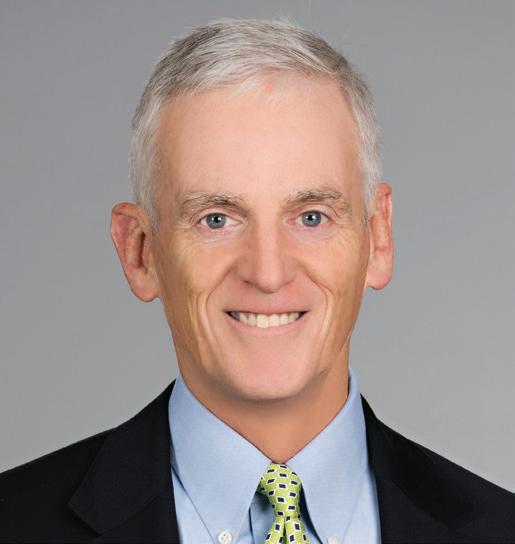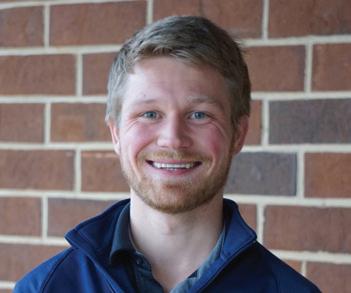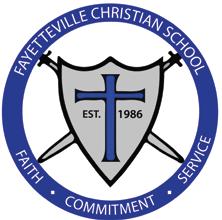HOW A SANFORD SCHOOL TAPS THE N.C. VOUCHER PROGRAM
FROM LIFEGUARD TO SWIMMING POOL EMPIRE CEO | WINSTON-SALEM SEEKS ITS GROOVE

HOW A SANFORD SCHOOL TAPS THE N.C. VOUCHER PROGRAM
FROM LIFEGUARD TO SWIMMING POOL EMPIRE CEO | WINSTON-SALEM SEEKS ITS GROOVE


Friends from residency days, three Ashe County doctors explore a fresh path in rural care.



















4 UP FRONT
6 POWER LIST INTERVIEW
Accenture talent acquisition executive Caroline Helwig Dudley describes key traits to navigate unprecedented change in the business world.
A Charlotte law firm’s new leader hasn’t forgotten his rural roots; Winston-Salem leaders say amphitheater can help restore the city’s heartbeat; Novo Nordisk cuts back but says Tar Heel expansion is on track.
North Carolina has much at stake as the defense industry makes weapon decisions for future wars.
46 HEALTHCARE: ONCOLOGY
Clinical trials and new care options are improving outcomes for cancer patients across North Carolina, including residents in smaller towns.
52 COMMUNITY CLOSE UP: GASTON COUNTY
Manufacturing remains the county’s largest economic sector, and schools and industry are collaborating to ensure companies have skilled workers.
INSERT: 2025 SMALL BUSINESS HANDBOOK
Case studies on how individuals make marketing, finance, technology and workforce development work, and lots of resources to help small businesses succeed.















































































Three enterprising doctors highlight our annual roster of under-40 leaders making a difference in smaller towns.
BY KEVIN ELLIS




































A college sports injury led Brian Sheehan to a lifeguard job. Now, he leads the biggest swim pool business in North America. BY TUCKER MITCHELL














A Sanford private school collects scholarship money at a record pace as the state revs its controversial voucher program. BY BILLY LIGGETT




A skyscraper reshapes Durham’s skyline with $1 million condos and $5,000 monthly leases. BY LORI
D. R. WIGGINS













One of the most interesting innovations in North Carolina in recent years has been NCInnovation's e ort to commercialize more research outside the Triangle.
Equally interesting are squabbles over the organization.
R aleigh business consultant Chuck Fuller and former Truist CEO Kelly King spent several years developing NCInnovation. ey raised $25 million in private funds and hired policy pro Bennet Waters as CEO.
In a 2023 op/ed, King said, “NCInnovation’s model can prove a game-changer, especially for rural North Carolina. I believe this e ort will substantially improve the balanced socioeconomic development of our state, which will dramatically improve the future for our kids and grandkids.”
At the time, lawmakers were considering shi ing $1.4 billion in state reserves to the new entity, which would spend investment returns for promising research ventures. at was trimmed to a $500 million allotment over two years, backed by N.C. Senate leader Phil Berger.
In May, NCInnovation approved $13.6 million for 17 projects at UNC System campuses from Wilmington to Asheville. Appalachian State University Professor Zachary Russell is using AI and robots to identify parasites in livestock. At UNC Pembroke, Professor Ben Bahr is developing a therapeutic compound to treat Alzheimer’s disease.
N CInnovation director Deanna Ballard, a former GOP state senator who chairs the program committee, says those grants re ect an impressive start. She’s a big advocate.
That’s the meat of the story. The exciting stuff is the conflict between the NCInnovation board leadership, including King, Sanford developer Kirk Bradley and former Waste Industries CEO Ven Poole, and Art Pope, the Raleigh CEO, philanthropist and champion of conservative causes. Appointed by former House Speaker Tim Moore to the group’s board in 2023, Pope hit the ground running, asking questions about spending and accounting practices. He also developed






a testy relationship with CEO Waters. Pope and King are used to winning. Pope runs one of the largest privately held discount chains in the U.S. King worked at Truist/ BB&T for 49 years, including 13 as CEO. Over the years, BB&T’s board included Tar Heel legends James Maynard and Nido Qubein, and disputes remained private. No one disputed that King or his predecessor, John Allison, were in charge.
Pope’s distrust of NCInnovation rattled King and other board members. ey formed a special committee and spent $1 million of the private seed money to investigate the dissident director’s complaints. Much of that went to K&L Gates, and its partner Robert Higdon, a former U.S. attorney who led the probe. An estimated $698,000 of sta time was also spent on the matter by the group, which employs about 20.
In August, the committee concluded that 16 of 17 speci c complaints by Pope were “completely unsubstantiated.” e other one had been xed. King suggested that board members not interested in promoting NCInnovation should quit.
Don’t expect that resignation letter. Pope says he didn’t receive due process; that he stands by his concerns; he was shocked by the Higdon report’s expense; and that House Speaker Destin Hall remains in his corner.
Asking questions in good faith is a d irector's responsibility, Pope adds. Waters is the one quitting, likely in early 2026, he said in August.
“I have done nothing wrong,” Pope says. “If a majority can silence dissidents by kicking them o a board, that’s a red ag about the organization.”
A nal note: NCInnovation’s existence hung in the balance in mid-September. Some Raleigh lawmakers want to claw back the $500 million to help pay for Hurricane Helene relief and other priorities. It’s a pawn in the state budget ght between Senate and House leaders.
King isn’t giving up. " e people of North Carolina are too damn good to let something this good die,” he told WRAL.

PUBLISHER
Ben Kinney bkinney@businessnc.com
EDITOR David Mildenberg dmildenberg@businessnc.com
MANAGING EDITOR Kevin Ellis kellis@businessnc.com
ASSOCIATE EDITORS
Ray Gronberg rgronberg@businessnc.com
Cathy Martin cmartin@businessnc.com
CONTRIBUTING WRITERS
Dan Barkin, Billy Liggett, Tucker Mitchell, Lori D. R. Wiggins
CREATIVE DIRECTOR Cathy Swaney cswaney@businessnc.com
MARKETING COORDINATOR Jennifer Ware jware@businessnc.com
EVENT DIRECTOR Norwood Teague nteague@businessnc.com
ADVERTISING SALES
ACCOUNT DIRECTOR
Melanie Weaver Lynch, eastern N.C. 919-855-9380 mweaver@businessnc.com
ACCOUNT MANAGER
Anne Brundage, western N.C. abrundage@businessnc.com
CIRCULATION: 818-286-3106
EDITORIAL: 704-523-6987
REPRINTS: circulation@businessnc.com
OWNERS
Jack Andrews, Frank Daniels III, David Woronoff, in memoriam Frank Daniels Jr.
PUBLISHED BY Old North State Magazines LLC
PRESIDENT David Woronoff BUSINESSNC.COM VOLUME 45, NO. 10








Caroline Helwig Dudley joined High Point University President Nido Qubein in the Power List interview, a partnership for discussions with influential leaders. The interview was edited for clarity.
Are you a CPA?
No, I’m in our strategy consulting practice. I was lucky enough to get a job here when I was coming out of college with my psychology and management major. I grew up in Chapel Hill, but we moved in my high school years to San Francisco for my mother’s career. When it came time for college, I was for anything getting me back to North Carolina.
You lead talent acquisition, but you’re not finding talent for Accenture, you’re finding the talent for your clients?
That’s right, I lead our function within Accenture. They asked me to do a leadership rotation and said we needed to rethink how we look at talent.
We don’t do the search for clients, but we educate them on how they should be doing it. We have a [business unit] that can do the search. But there are some clients who say, “Help us make our systems more fair. Help prepare us for technology we don’t even know that may be coming in a few years.” We partner with them in lots of different ways to think about what their needs are.
Charlottean Caroline Helwig Dudley is a 25-year veteran of Accenture, including the past three years as global lead for talent and human potential/ talent acquisition. That title hints at her influence at the publicly traded consulting company that employs more than 790,000 globally and has a $150 billion market value. The Duke University graduate spent much of her career working with financial services clients. In 2023, she donated a kidney to a 5-year-old student attending the Charlotte private school attended by Dudley’s four children. She has been involved in the Women’s Impact Fund, Urban League and Charlotte Regional Business Alliance.
What questions do you ask your clients to really dig in and understand their needs?
The first thing we do is we ask, what do you want to be as a company? How do you see yourselves? What is your purpose as a company?
What talent do you need and how do you get there? What skills do you need and how do you fill that gap? Do you start to work with universities to create programs to educate [employees] or do you recruit or do you recruit people who have already done that?
When looking for people that will fit an organization, what are the two or three minimum requirements you look for?
That’s an easy answer. Every discussion we have, whether it’s hiring C-suite people or hiring somebody who’s going to help make sure our people have clean facilities, is seeing what is the capacity to learn? Tell me about something that you’ve learned in the last six months. You can see it when you talk to people, you can see their eyes light up when they truly have that skill.
What is it that you’re trying to excavate when you ask that question?
The biggest reality we are seeing right now is that the volatility and rapid pace of technology is continuing to increase. We don’t know what we’re all going to face in a week or six months or three years. When we look for people to bring into an organization, those who are avid learners are ones not just filling a job, but also want to continue to make a career with those companies.
Are you looking for growth patterns, flexibility, resilience?
Absolutely. We look at what makes those true and also a positive mindset. That sounds so basic, but that’s a huge piece.
Coachability is also another big piece. This is a team sport that all of us are doing. There are still some individual contributor roles, and we desperately need those to go well. But how can someone take the learnings from a coach, whether it’s people working for them or people they’re working for, and apply it?
Critical thinking skills are also absolutely important. What does this mean and not just taking things at face value, but trying to understand deeper.
If we were hiring a university president, perhaps we put them through an experience that gave them 10 different scenarios that they would likely encounter through the day. Maybe leading an alumni meeting, or perhaps a tough conference call where you’re being fed information that is not easy to handle.
Whenever you can embed the real experience, that helps you and the organization decide whether somebody is right for the job. More importantly, they should be interviewing you. Do they feel like this is a good spot? If humans feel empowered to reach their potential, that’s going to absolutely help the transition be smoother and add value a little bit more quickly.
What are the things that you look for to determine if a person has the right match culturally?
We know culture is what makes or breaks an organization. There’s a really concerted effort by many organizations to be able to examine that culture, to make sure it’s a culture where people can succeed. The companies that are not evolving as quickly are those that are encountering challenges. We see it every day in the news.
How can we really help companies get their message out around their purpose? If you can clearly articulate your purpose, then you’re going to naturally attract people who are drawn to that purpose. That’s very high level, but you have to start with that.
We are looking at organizations who have really made leaps in terms of skill-based hiring. That includes the cultural components that are going to make somebody love a job or not, including coachability.
We should like an environment where every day is going to be different, and we don’t know what’s going to be thrown at us. We are going to take something really complex and figure out how it works together, and get to the solution.
We put a group through the interview experience that was intentionally complicated and hard to understand. Half of the group said, “I love that. It was so much fun, and I figured it out.”
The other half said, “I really like having a to-do list of things and being able to knock it out and having certainty that that is going to be my day. I realistically don’t think that this is going to be the right culture for me because I’m going to be expected to do things that I don’t like doing.”
It’s also important to make sure that with AI and automation, we’re making sure that the human connection is there. Not only am I selecting the right culture, but are there human connection points to help you succeed. Once you come in our doors, I got you. I have your back. I’m going to help you get to that next point. That’s just as important as the selection.
My hope for technology is that it helps humans reach their potential. The transactional things can be taken away, which allows for more human connection. That is going to be magic. That is the fun when we all have just a fantastic time. What we remember as we go through careers and lives is the people whose lives I’m connected with.
Where does diversity and inclusion come into all of this?
It comes down to how we can make sure that all those who have potential can get that sense of belonging. That’s going to look very different group by group and area by area. I am a big believer that though talent is equally distributed, opportunity is not. Companies can actually uncover so much hidden talent that they are going to need as they go forward.
We’ve seen the numbers like all the labor data that’s coming out in the birth rates. We are going to need to use all the talent that’s out there. My challenge to the communities that I’m in and the companies that I work with is, how do we make sure that we can connect with talent that might be hidden?
We have an apprenticeship program where we’ve hired up to 20% of our entry-level workforce from those [who have not been in traditional higher education]. It’s not just about hiring, but it’s also about a full experience to give them on-the-job experience. We have
people from different backgrounds, cultures, ethnicities, genders and socio-economic status.
What do you think is the greatest motivator?
To me, it can be summed up in feeling valued. We know that old statistic, which has remained consistent over the decades: People leave their managers. The people that they’re around and what comes through loud and clear is about feeling valued.
How do you ensure that a person feels valued?
It’s getting to know the human being. There’s not one answer. I don’t think what motivates one person to feel valued might be the same as others.
Some need their name on a trophy, and they need it very frequently. Some might feel valued if their kids see them and say, “I know you’re working really hard for me to have a good life and I respect you for that.”
We all come with our own lenses. What we have in common is that we want to build great leaders, everybody that we’re around, whether it’s people I have on my teams, clients, my children or their friends.
Caroline, your greatest accomplishment is that you’ve been recognized by a global company as a leader of purpose. You’ve been given the opportunity to do important things. You earned it clearly. What is your definition of success?
That question has come up a lot in the past couple of months, as I’m in an era in my life where I have friends and friends of friends who have retired early. So I think about what is most important in what makes me a success? It really comes back to whose lives I’ve been able to impact. How have I helped people reach their full potential, not just their jobs or careers or school or athletics, but the quality of their lives?
It’s not time management. It’s where I want to put my energy, and so I have been doing that wholeheartedly in places where I can help humans to have the quality of life that they want and to reach their potential.
I will spend an infinite amount of time, whether it’s one-onone or something that I can do in the background, to help to do that. What is the most heartfelt thing is that I then see the amazing amount that other people did for me.
What would you say to a group of young women who aspire to get the best for themselves through design and merit?
I would say a lot of things to them. I love that you have shared that not everything is going to be a win, but you’re either going to win and have success, or you’re going to learn. We are all going to fail. And if you aren’t failing, you are not putting yourself in the room to be able to push yourself enough to fail.
How are we enabling the people within our teams to push themselves to the point where failure is OK? The point of fear is a tough one because of the real concern that we have not been given enough chances to fail. You get your one shot, and you’re written off.
I’d also share how I get from here to here in two years, building something to be proud of, and understanding authentically who you are and what your style is.
I would encourage women not to just model, because what you may see may not be what you want your life to be like. How do you get really true with yourself, and not feel like you have to mask all the time and be somebody completely different from who you are? When you can be valued for who you are, you can make so much more of an impact. ■

By David Mildenberg
Stephen Cox is a Harvard man who never lost sight of his upbringing in Moncks Corner, South Carolina, which had fewer than 5,000 residents when he grew up there.
Inspired by a mock trial competition as a sophomore in the local public schools where his parents taught for decades, he became the rst person in his town to enroll at Harvard University, eventually earning bachelor’s and law degrees.
“I knew I wanted to come back to the South and work in a larger city,” he says. Atlanta seemed too big, Charleston too small, so he sought interviews with some Charlotte rms. He started at the rm full time in 1997, and last month was elected managing partner. He succeeded Allen Robertson, who had held the post for a decade.
e law rm has nearly 180 lawyers with three N.C. o ces and one in Rock Hill, South Carolina. at is more than double its size when Cox joined. It has 96 partners sharing ownership. e law rm has played a central role in North Carolina’s growth as a business hub by representing the Belk and Spangler families, auto magnate Bruton


Smith and other major regional companies, families and entrepreneurs.
Founder Russell Robinson II, among the state’s most in uential business lawyers for decades, died on Sept. 4 at age 93. He and Carlton Fleming started the rm in 1960 and were joined a year later by Robert Bradshaw.


Cox had not heard of Robinson Bradshaw before receiving a summer internship while attending Harvard, where he graduated in 1996. His classmates included Supreme Court Justice Ketanji Brown Jackson.
Among those interviewing him at the Cambridge, Massachusetts campus was Robertson, who had joined the rm in 1989. e two men are among six or eight Harvard Law graduates at the rm.
As managing partner, Cox says he wants to sustain Robinson Bradshaw’s collegial culture. “A lot of people will say that, but we really work hard at it and try to eliminate any sort of practices that would cause competition between us,” he says. “We’re not a top-down culture, and these are my partners and colleagues, so it’s more about building collaboration and consensus.”
e rm hires people who combine initiative with being “very good at building long-term client relationships,” he says. “We have got to hire people

who are nice folks and get along with each other … I don’t think sharp elbows are helpful in the long term.”
Cox’s career focus has been on complex litigation, along with matters related to employment and construction. His biography cites work with colleagues on cases such as convincing a court to decertify a class action case that involved potentially more than $100 million in damages against their client, and defending Wachovia Bank in shareholder lawsuits stemming from its sale to Wells Fargo.
Cox was based in Rock Hill for much of his career, though he’s been at the Charlotte office for the past few years and now lives in the Queen City. “I loved working in Rock Hill because it was like being in a smaller town but having the resources and relationships of the big law firm backing me, which was the best of all worlds.”
During Cox’s career, a dozen-plus law firms based outside of Charlotte have expanded into the city by opening their own offices or merging with local firms. “I don’t think it has threatened or hurt us,” Cox says, acknowledging competition for clients and talent is greater. “It has made the legal environment more sophisticated and challenging, which I think can only help us attract people and elevate the depth and range of services offered in the city.”
Without changing its approach, Robinson Bradshaw has experienced steady, consistent growth, he says. Expansion plans aren’t a major priority, he says.
“We pride ourselves very much on being one firm across all four offices. And the more offices you have, the more it takes to maintain that culture.” ■

Cox’s predecessor as managing partner, Allen Robertson, is also a native of a small Carolina town with a Harvard Law School pedigree. He grew up unincorporated Scotts in Iredell County, about five miles west of Statesville, and attended UNC Chapel Hill as a Morehead Scholar.
His father, Troy Robertson, was a plant manager and a Republican Party activist. He introduced his son to law firm partner Robert Bradshaw, a key figure in boosting statewide GOP candidates.

Robertson believes he was the only registered Republican to serve as a law clerk for Charlotte federal judge James MacMillan, a Democrat who gained national prominence for his rulings on school desegregation cases during his 27year tenure. It was mostly a self-selecting process, Robertson says, because more conservative students typically wanted to work for MacMillan’s staunchly conservative peer, U.S. District Court Judge Robert Potter.
Robertson joined the law firm in 1989, accepting a $53,000 annual salary when New York firms were offering Harvard graduates $100,000 to work in Manhattan. His first interview was at the firm’s Independence Center office in uptown Charlotte, where the firm operated from 1984 until earlier this year.
In February, Robinson Bradshaw moved into four floors at the Legacy Union complex on land formerly occupied by The Charlotte Observer. As managing partner, Robertson helped lead negotiations that led to the firm becoming a key anchor of the 24-story building developed by Lincoln Harris.
Visitors to the 23rd-floor lobby step off the elevator and immediately see east Charlotte through 14-foot-high windows. The firm has 171 offices, mostly covering about 130 square feet. An investment of more than $20 million led to outdoor terraces, lots of conference rooms, an improved dining area, a private four-story staircase to encourage “bumping into each other,” and natural lighting even for the internal offices.
Robertson started his career as a bankruptcy law specialist, but moved to public finance and healthcare law after the savings and loan crisis of the early 1990s ran its course. The firm now has many healthcare clients, including Atrium Health, Novant Health and Iredell Health.
As managing partner, Robertson led significant growth at the firm, including the opening of a Raleigh office in 2020. In September, he received a distinguished service award from the National Association of Bond Lawyers. ■

Don Flow and Jim Brammer want a more entertaining, noisier downtown Winston-Salem.

By Brad King
ver the past 20 years, Winston-Salem’s urban core has undergone significant transformation, marked by the addition of new housing, restaurants, and cultural institutions, as well as a substantial amount of vacant office space. Now, two business leaders want to add a privately financed 5,000-seat amphitheater to draw about 30 entertainment acts to the Twin City, as soon as next year.
In early September, City Council approved a five-year lease for a 1-acre parcel across Sixth Street from a site owned by Flow Automotive CEO Don Flow. That approval provides staging space essential for the venue. The main site is a 2-acre block controlled by Flow, whose company owns 45 automotive dealerships.
His partner on the project is Jim Brammer, CEO of Mocksville-based Concert Stuff Group, which produces more than 1,000 live events annually worldwide.
Supporting downtown Winston-Salem is a priority for Flow. He purchased the former GMAC tower at 500 W. Fifth St. for $6 million in 2017, spent $10 million to renovate, and transformed the vacant building into a multi-tenant hub. It is a block from the amphitheater site.
“Winston-Salem, in the last 20 or 30 years, has spent way too much time lamenting what once was, instead of trying to imagine what could be,” Flow told the Winston-Salem Journal. “This amphitheater is all about creating that energy and vibrancy.”
Brammer started in Winston-Salem before expanding globally, and has produced events for Garth Brooks, Beyonce’ and other artists.
While venues of similar size operate in Charlotte, Raleigh and most major cities, Brammer says Winston-Salem has no equivalent space to attract mid-sized touring acts such as Brad Paisley and Darius Rucker. “There’s an entire ecosystem of 5,000-seat venues around the country, and artists that play those and do very well.”
There are no tax incentives tied to the project. Flow says he tried to buy the city-owned land, but was told a lease was the only option. City Council approved a $1 per month contract, signaling its support. The project is expected to attract 150,000 visitors annually and generate $50,000 in property tax revenue.



Council members Barbara Burke and Scott Andree-Bowen voted against the lease, citing concerns from residents of the cityowned Crystal Towers apartment building adjacent to the site. It includes many elderly residents on fixed incomes. Project organizers agreed to meet with residents in September.
The amphitheater is likely to lead to a revised city noise ordinance that will establish decibel thresholds, Assistant City Manager Ben Rowe says. Concerts will have to end by 11 p.m.
Event-day operations will be led by Bucky Dame, who previously oversaw the Lawrence Joel Veterans Memorial Coliseum, which is owned by Wake Forest University. Parking would rely on nearby decks and surface lots that are rarely used at night.
“Every city in America would like for Jim [Brammer] to invest his time, talent, relationships, and capital in their community,” Flow told the Triad Business Journal. “When you combine that with the criticism we hear — that Winston-Salem doesn’t have enough for young people to do — you begin to see why this project makes sense.”
Brammer believes the timing is right. “Winston-Salem has always had this arts and music vibe, and it seems like we just kind of let it get a little dull over the last decade or so,” he told the paper. “I think this is a great way to reinvigorate it.”■




















anish drugmaker Novo Nordisk has built a mighty operation in North Carolina since opening its rst plant in Johnston County in 1993, highlighted by plans for a $4.1 billion, 1.4 million-square-foot facility expected to be completed in 2027. More than 2,500 people work for the company in the state, along with pledges for an additional 1,000 jobs.
In recent years, much of the growth has been tied to its Wegovy and Ozempic drugs for weight loss and diabetes treatment. Shares of Novo Nordisk gained nearly sevenfold in the decade before its peak at about $140 in mid-2024.
But increasing competition and modest clinical trial results on new drugs have forced retrenchment at the company. is year, Novo changed CEOs and is cutting 9,000 of its 78,400 positions, including 5,000 in Denmark, while recording a $1.3 billion restructuring loss.
Shares were trading around $54 in mid-September, with the company’s market value about $187 billion. lt once topped $600 billion, making it Europe’s most valuable public company at one time.

“Novo is instilling an increased performance-based culture, deploying our resources ever more e ectively, and prioritizing investment where it will have the most impact — behind our leading therapy areas,” says CEO Mike Doustdar, who took over in August.
In late August, a company spokeswoman said “U.S. manufacturing sites remain top priority” despite a hiring pause. “Our core business is built on diabetes and obesity — and our North Carolina facilities in Durham and Clayton are essential to producing those treatments, including our $4.1 billion expansion project in Johnston County,” she says.

e drugmaker says the cuts will help it simplify its organization, “improve the speed of decision-making and reallocate resources toward the company’s growth opportunities in diabetes and obesity.”

While Novo presses ahead, Natron Energy’s plans for a $1.4 billion factory to make sodium-ion batteries in Edgecombe County have ended. e company had pledged to create 1,062 jobs at the site, the second-biggest total of any N.C. corporate expansion in the past 18 months. (JetZero in Greensboro tops the list.)
But it abruptly shut down in early September amid plummeting interest in startup battery companies. Its largest investor, Santa Clara, California-based Sherwood Partners, is selling its assets. Natron was pioneering an alternative to lithiumion batteries used to power many electric vehicles.
North Carolina promised Natron $21.7 million in performance-based incentives to build the factory near Rocky Mount, plus another $30 million for initial construction. No money changed hands, however. ■



Brightspeed raised $1.65 billion, bringing total funding to nearly $6 billion for its fiber expansion. The telecom has already surpassed 2.4 million premises and now targets more than 5 million across 20 states. North Carolina remains central, with 429,000 households connected and plans for nearly 900,000 locations statewide.
Mills Automotive Group, a familyowned business that owns about 35 auto dealerships, opened a second Porsche sales outlet here. In 2004, Damian Mills bought a Ford dealership in Smithfield and has since expanded in North Carolina, South Carolina, Kentucky, Louisiana, Virginia and West Virginia. Mills Automotive is among the largest Black-owned dealership groups in the U.S.
Ontario-based AVL, which manufactures enclosures to protect power generators in data centers and other industrial sites, started production at its plant, which was unveiled in May. The plant opened with about 75 jobs filled, while the company is


expecting to employ 325 by next July. AVL is investing $56 million in its first U.S. manufacturing facility.
Former Lightstone executives Ben Johnson and Conor Mullen launched Port Commercial Real Estate, a firm focused on infill industrial investments. Port aims to close $100 million in deals within its first year, with a five-year target of $500 million across the Southeast.
Truist Financial named Travis Rhodes to succeed Jenna Kelly as North Carolina West regional president. Kelly now heads the Consumer and Retail practice group within Truist Corporate Banking. Also, the bank is adding 100 offices in Charlotte and seven other cities over the next five years.
Elon University agreed to a strategic merger with Queens University, which has roots here since 1857. Elon, with about 7,300 students, will operate Queens, which has enrollment of about 1,800.
Chicago-based Riverside Investment & Development plans to add a second, 43-story tower at its Queensbridge Collective project, anchored by a nine-floor lease from the Moore & Van Allen law firm. The building will be called 1111 South Tryon and is near the intersection of Tryon and Morehead streets. It is slated to be next to Riverside’s 42-story residential building,

expected to be completed next year. The new building is slated to open in 2028.
Two Texas-based companies, Whataburger and American Airlines, signed sponsorship deals with the Carolina Panthers and Charlotte FC. The Whataburger partnership includes community programs such as the Panthers’ Girls Flag Football initiative and a presence at Bank of America Stadium. The airline employs 15,500 people in the Charlotte area.
Rada, a restaurant that opened in January in the Myers Park neighborhood, is the only N.C. restaurant on the New York Times’ latest Restaurant List of best new eateries. It is owned by Eloy Roy, while the executive chef, Callan Buckles, formerly worked at New York restaurants Claud and The Four Horsemen, the Times reported.
Chicago-area-based Essendant will close its office supply warehouse here in November, resulting in the loss of 58 jobs. Essendant cited company downsizing as the reason for closing the facility in November.
Johnson & Wales University will offer a three-year hospitality management bachelor’s degree aimed at students eager to start their careers and spend less time and money on schooling. The program will commence in the fall of 2026 and require
90 credit hours of study and on-the-job experience to complete the program.
Pike Corp. will move its headquarters next year to more than 50,000 square feet at Legacy Union 6Hundred in uptown, establishing the city as its long-term base after decades in Mount Airy. The 80-year-old utility infrastructure firm has doubled revenue in five years to nearly $3 billion and employs 12,000 nationwide.
Jeff Tonidandel and Jamie Brown, the husband-and-wife duo behind Haberdish, Supperland, Ever Andalo and Leluia Hall, star in a PBS reality series, “Fork & Hammer,” debuting Oct. 15. The show, premiering at Carolina Theatre, chronicles their restaurant empire, historic preservation projects and entrepreneurial journey.
Red Bull, Rauch North America and Ball Corp. broke ground on a $1.5 billion manufacturing and distribution campus at The Grounds, the former Philip Morris site. The project will span 2.4 million square feet, produce 3 billion Red Bull cans annually and create up to 700 jobs. The project was announced in 2021, but has been delayed.
Blue Dot Readi-Mix boosted its presence in Upstate South Carolina with the acquisition of Greenville-based Sandlapper Concrete. Blue Dot operates nine plants in the Carolinas and supplies construction sites with concrete, stone, gravel, concrete block, brick and rebar.
Lowe’s plans to acquire Californiabased Foundation Building Materials for approximately $8.8 billion. FBM distributes drywall, ceiling systems, commercial doors and other products to large residential and commercial professionals in both new construction and remodel applications. It has more than 370 locations in the U.S. and Canada. FBM leadership will continue to lead the company. The deal is expected to close in the fourth quarter.
Johnson Concrete Products acquired two RidgeRock Retaining Walls manufacturing sites in Statesville and Ellijay, Georgia. Leadership will remain unchanged. The Statesville facility has 13 employees and the Ellijay facility has 14. This brings the total employee count across the Johnson Concrete Products’ companies to 355. Charlotte-based RidgeRock will continue as an independent company.

Hutchens Law Firm joined a Little Rock, Arkansas-based firm to launch Foundation Legal Group, which specializes in creditors’ rights. The partnership combines two long-standing mortgage banking law firms, Hutchens and Wilson & Associates. The firm has 38 lawyers, 50 staffers and offices in Arkansas, Mississippi, North Carolina, South Carolina and Tennessee. Terry Hutchens started hishis firm in 1980.
Construction began on a 37,300-square-foot Child Development Center on Rhine Road to address a childcare waitlist averaging 600 to 700 children. Built by Raleigh’s Cooper Tacia General Contractors with Army Corps oversight, the new facility will serve 338 children under age 6 and is slated for completion in 2028.

Town Council rejected a $6.4 billion data center proposal, citing resident concerns over energy, water and untested technology. Oregon-based Energy Storage Solutions is still pressing for the project, which it says would have created about 500 jobs.
Southeastern Community College is launching a $22 million, 22,000-squarefoot transportation STEM lab to expand its automotive and truck-driving programs. Opening in 2027, the facility will feature 10 vehicle lifts, a CDL lab and an advanced dyno cell for EV diagnostics, boosting student training and industry partnerships with Ford and Hyundai.
ECU Health is seeking $220 million from the N.C. General Assembly to reopen shuttered Martin General Hospital as the state’s first rural emergency hospital and expand ECU Beaufort Hospital. About $70 million would retrofit Martin General, which closed in 2023, while the rest would fund a new Beaufort bed tower to handle inpatient demand.
AI-driven training platform, Skillmaker raised $2.5 million to expand ZR-enabled workforce programs. Backers include Idea
Fund Partners, Cape Fear Ventures and Strada Education Foundation. Current work with NAPA Auto Parts reduces technician training from years to weeks, with plans to broaden into other trades.
Live Oak Ventures invested in Cascading AI (Casca), a Y Combinator–backed platform automating loan origination. Live Oak Bank is using Casca to streamline its express loan process and expand across its franchise. Casca will scale operations and team growth with the funding. Terms were not disclosed.
Terex will sell its Tower and Rough Terrain Cranes businesses to Italy-based Raimondi Cranes, a deal that includes Terex’s North America cranes service and support operation here. The sale, expected to close in late 2025, also involves two Italian facilities.
Live Oak Bank could earn $20 million to $25 million from the sale of fintech firm Apiture to Paducah, Kentucky-based CSI. Live Oak co-founded Apiture in 2017 to help smaller banks compete digitally. The sale is expected to close this year.
Avelo Airlines will end nonstop service from Wilmington International to Houston after September and cut Detroit flights to peak seasons only, citing low demand. The routes launched in June and were originally scheduled through the holidays. Avelo, which made ILM a base this spring, still serves 14 destinations, including Punta Cana.

ECU Health and Acadia Healthcare opened a 144-bed psychiatric hospital to expand mental health access in eastern North Carolina. The facility includes a pediatric unit, will double ECU’s psychiatric residency cohort, and aims to address severe provider shortages.

Guilford College trustees rewarded acting President Jean Parvin Bordewich with a two-year term after she led efforts to raise about $6 million from donors, averting the potential loss of academic accreditation for the 188-year-old Quaker college in Greensboro. After commuting from Washington, D.C. as acting president since January, Bordewich and her husband, Fergus Bordewich, are moving here.
Wake Forest University Health Sciences purchased a 1.91-acre undeveloped tract for $2.8 million near its planned Medical Center. The property, at 4421 Jessup Grove Road, was sold by Hayleigh Village Apartments.
Charter Development, a subsidiary of Michigan-based National Heritage Academies, has purchased Phoenix Academy’s three campuses here for $29.6 million. The deal includes the elementary, middle, and high school properties. The seller was Phoenix Academy Foundation, according to Guilford County deed filings.
Culp announced a new cost-reduction initiative aimed at saving at least $6 million annually. The plan includes closing its Knoxville, Tennessee, Read Window production facility by year’s end and consolidating operations into its Stokesdale plant. It’s the company’s third consolidation move in 18 months.
Reynolds American, the British American Tobacco Group’s U.S. subsidiary, named Dawn-Marie Hutchinson a senior vice president and

chief information officer. She will lead the Reynolds organization’s technology strategy and operations, encompassing digital workplace, core platforms, data and analytics, cybersecurity, and IT service delivery. She will serve on the company’s leadership team.

New York’s H&H Bagels will open its first North Carolina location at University Place by late 2025, with four more Triangle shops planned in Raleigh and Durham. The 2,300-square-foot café will seat 30 indoors and outdoors, marking H&H’s latest step in national expansion.
UNC will be the focus of a season-long Hulu series during Bill Belichick’s first year as head coach. Belichick told players the show will highlight the Tar Heels’ commitment to winning and teamwork.
Restor3d, a company making personalized 3D-printed orthopedic implants, raised $104 million in new funding. Switzerland-based Partners Group acquired a significant minority stake. The financing supports product innovation and growth as Restor3d nears $100 million in revenue and expands nationwide use.
Dollar Shave Club opened its 17,500-square-foot headquarters at the American Tobacco Campus, relocating from California. CEO Larry Bodner cited the region’s talent pool, livability, and cost advantages. The office will house 80 employees with potential for growth.
Houston-based Hines filed plans for Silicon Drive Industrial Park, a fourbuilding, 809,141-square-foot warehouse and light manufacturing project on Wolfspeed’s property. Existing Wolfspeed buildings will be demolished as the chipmaker works through bankruptcy. The site spans nearly 80 acres and is valued at $22 million.
North Carolina Central University and Durham Tech have partnered to expand career pathways in the life sciences industry. The agreement allows Durham Tech students in Applied Science programs to transfer seamlessly into NCCU’s College of Health and Sciences. Leaders say the initiative supports access to high-growth, high-wage jobs as N.C.’s life sciences sector tops 100,000 workers.
Dr. Craig Albanese has joined Oakland, California-based Kaiser Permanente, the nation’s largest nonprofit health system. He joined Duke University Health System in January 2022 and had been its CEO since February 2023. Albanese will be president over Integrated Care and Coverage at Kaiser Permanente and will lead day-to-day operations for the healthcare system. Duke University has begun a search for his replacement.
Bionic Health, co-founded in 2022 by Robbie Allen and Dr. Jared Pelo, has been acquired by RTP telehealth company Thrive. The merger expands Bionic’s AI-driven preventive care plans through Thrive’s nationwide fitness club network. Pelo will stay on as CEO; Allen will focus on AI consulting.
Labcorp rolled out a new FDAauthorized blood test that can detect early signs of Alzheimer’s disease in adults 50 and older. The in-vitro diagnostic test, developed by Fujirebio Diagnostics, measures amyloid plaques associated with the disease and is now available nationwide.
Fujifilm Biotechnologies secured a 10year, $2 billion agreement with Johnson & Johnson for its $3.2 billion facility, creating 120 new jobs. The site, among the world’s largest cell culture plants, will be fully operational by 2028 and serve as a major life sciences hub alongside projects by Amgen and Genentech.
Thermo Fisher Scientific opened its 375,000-square-foot manufacturing facility that will produce 40 million precision pipette tips weekly. Gov. Josh Stein and local leaders hailed the project as a boost to North Carolina’s growing biotech cluster.
The USGA’s Greenkeeper Apprenticeship Program, based at Sandhills Community College, will expand in 2026 with a new GAP Technician track focused on golf course equipment maintenance. The program will train 10to15 students in its first cohort and complement the existing GAP Operator curriculum.
Sysdig, a San Francisco-based cloud security firm valued at more than $1 billion, moved its East Coast headquarters to a 4,600-square-foot office in North Hills.

The company, which started in the Triangle with three remote workers and now has 30 employees including its CEO, plans to expand with 15 open positions.
Denver-based BMC Investments entered North Carolina with the purchase of Sterling Town Center, a 339-unit multifamily community. Partnering with Turnbridge Equities and Abacus Capital, BMC plans capital upgrades to the 2013-built property, as it plans a national expansion.
Salt Lake City-based Western Governors University, a national online institution with thousands of students in North Carolina, plans to open an East Coast hub near Crabtree Valley Mall next spring that is expected to house about 300 workers in the next five years. WGU already has about 300 of its approximate 10,000 employees working in the state, but most of those work remotely. Those in the East Coast hub will be involved in procurement, program development, technical support and operations.
Crabtree Valley Mall will undergo a $60 million renovation led by new owner Macerich Co., which acquired the property in June for $290 million. Upgrades include new landscaping, lighting, and interiors aimed at boosting occupancy to 90%. It is requiring 12 small businesses operating temporary mini-stores to vacate in October, just before the holiday season.
Joe Brannan, who has been CEO of North Carolina’s Electric Cooperatives since 2012, is retiring next April, the group said. The organization represents the North Carolina Electric Membership Corp., the N.C. Association of Electric Cooperatives and Tarheel Electric Membership Association. The state’s 26 cooperatives serve 1 million households and businesses in 93 of the state’s 100 counties.
The North Carolina Licensing Board for General Contractors named Anna Baird Choi as executive director, marking the first female to hold the post in its 100-year history. Choi has served as the board’s primary legal counsel for more than 20 years. The board licenses about 30,000 general contractors in the state.
Virginia-based S&N Infrastructure laid off 126 workers across North Carolina after losing its contract with Brightspeed, its biggest in the state. The utility locators worked across the state but reported to the office in Franklin County.
Capitol Broadcasting Co., owner of WRAL, the Durham Bulls, and Holly Springs Salamanders, will manage Five County Stadium after the Carolina Mudcats’ move to Wilson next year. The 10-year lease includes $710,000 in payments, stadium upgrades, and shared use for county and town events. The county and town have agreed to invest up to $10 million through 2027 in capital improvements.

Buncombe County commissioners approved reallocating $5 million toward A-B Tech’s planned WNC Futures Factory, a 70,000-square-foot advanced manufacturing hub at Biltmore Park West. The project aims to train 800 workers annually by 2035 and create nearly 2,750 jobs. A-B Tech is also seeking a $30 million federal grant for construction.
East Fork Pottery is suing Travelers Insurance after the company denied its $1.1 million business interruption claim from Tropical Storm Helene. CEO Alex Matisse said flooding at a 10,000-square-foot Biltmore Village facility destroyed workshops, offices and equipment. Experts say more western North Carolina businesses may follow with similar lawsuits.
Costco applied for conditional zoning to build a 160,000-square-foot store with a 32-pump fueling station and tire center at Enka Commerce Parkway. The project could reach the city’s Planning and Zoning Commission by Nov. 5 before heading to City Council for approval. It marks the wholesale membership retailer’s first store in western North Carolina.
Asheville Tea Company is rolling out its fall flavors — Pumpkin Pie Chai and Spiced Apple Butter — nearly a year after losing its facility to Hurricane Helene floods. The business has relied on copackers to keep producing teas and hopes to move into a new production space in 2026.
Asheville Markets, a 120,000-squarefoot shopping center on South Tunnel Road anchored by Whole Foods and Guitar Center, sold for $45.7 million. The transaction, Buncombe County’s largest of 2025 so far, transferred ownership from Asheville Marketplace Holdings to IVT Asheville Market, a subsidiary of InvenTrust Properties.
The N.C. Department of Environmental Quality denied Horizon 30 a permit for its Carter Quarry in Mitchell County after the company operated illegally for months. A judge issued an injunction earlier this month ordering the company to stop digging near the Nolichucky River. Regulators cited the court order as grounds for rejection. ■









by Emily G. Massey and S. McKinley Gray, III
Temperatures are falling, which means holidays are approaching. For employers, there is one piece of good news: Halloween is on a Friday! Otherwise, buckle up for another year of holiday-related requests. We've gathered some of the most frequently asked questions employers have around the holidays to make them a little less scary.
Can employees be disciplined for inappropriate holiday party conduct?
They can, and they should be. Ignoring inappropriate conduct when it occurs can open up problematic doors in the future. Goof ups at a party may not necessitate termination, but the unacceptable conduct must be addressed for consistency.
Do paid holiday hours count toward overtime?
Under North Carolina and federal law, if the employer pays employees for taking time away from work on certain holidays, then those paid hours off work will not count toward calculating overtime hours. However, employer policies or practices often contradict this default rule, and the employer must be consistent.
Do gift cards count toward compensation for purposes of calculating overtime?
If Clark Griswold were a non-exempt employee waiting for his annual holiday bonus check, and that bonus was based on a pre-determined formula, then the bonus would count toward the overtime calculation for the applicable workweek. However, purely discretionary bonuses and gifts do not count toward overtime.
Is an employer required to reimburse employees for traveling to the company holiday party?
Is the holiday party mandatory? If so, then it is probably a good idea, and could be required under certain state employment laws, to pay for travel time and hours spent at the party. Otherwise, as long as the party is completely voluntary and optional, then the employer does not have to pay employees for attending (whether hourly wages, salary, or travel time/expenses).
Who gets priority when requesting extra time off around the holidays?
Employees often want the same popular days off, creating scheduling conflicts and potential coverage gaps. Ensure the company has a clear policy about requesting vacation or PTO, indicating when and how a request must be made. Even if such policies are already in place, the 'first come, first approved' approach may not work for all teams or be beneficial for morale. Try out different scheduling options ahead of time to see if the team can coordinate coverage before management has to step in and decide. Now is the time to do this (not November 20th).
Do religious accommodations requests trump PTO/vacation requests?
It depends. See above about having clear policies in place as to when employees must request PTO/ vacation time off, which should be the same as religious accommodations requests. Given the burden on the employer to engage in the interactive process with employees making religious requests, it is likely that these requests will take precedence over non-religious PTO/ vacation requests. However, the interactive process includes a balance of reasonableness on the part of the employee making the accommodation request.
Two employees show up at the holiday party as a couple. Is this a problem?
Holiday parties are not an exception to the company's inter-office relationship policy. Don't have such a policy? Then there may be no problem if the newly discovered relationship does not affect the employees' duties at work. However, whether it is policy or not, if one of the individuals in the couple is a supervisor, then the company must address the relationship immediately.
Do we need an alcohol policy for holiday parties? Some people get a little too jolly!
You may not need a policy, but you should set employees up for success by reminding them to have fun but remember that all workplace policies apply. Proactive communication works well for standards for Halloween costume events, Secret Santa gift exchanges, and other holiday celebrations, too. (Note: if you have a workplace drug and alcohol policy but allow alcohol consumption at company-sponsored events, make sure that caveat is included in the policy.) Another tip: hire professional bartenders for your party; if someone is impaired, they won't be served more to drink.
Now, today, is the time to plan for the holiday season. Meet with your HR team, review your company handbook for relevant policies, update documentation protocols, and offer refresher training to your employees. You can help keep this season safe, and merry, for all involved.
Should your business need counsel to assist, we are happy to help. Give us a call.
Wednesdays in October are All About AI: read more about Generative AI, its governance, and compliance concerns at wardandsmith.com






Emily G. Massey
egmassey@wardandsmith.com
919.277.9168
S. McKinley Gray, III
smg@wardandsmith.com 252.672.5476
Both Emily and Ken are North Carolina State Bar Board Certified Specialists in Employment Law.
wardandsmith.com


This article is not intended to give, and should not be relied upon for, legal advice in any particular circumstance or fact situation. No action should be taken in reliance upon the information contained in this article without obtaining the advice of an attorney.






Recently, Defense News published its annual list of the top 100 global defense contractors. At the top was Lockheed Martin, which collected more than $68 billion in defense revenue, most of it from the U.S. military. The top 10 U.S. defense contractors earned a collective $273 billion in defense dollars last year.
Once you pay the warfighters, feed them, gas up tanks, much of the defense budget goes to folks like Lockheed. They exist because America lives in a dangerous world.
For more than 80 years, we have been a global superpower. We spend a trillion dollars annually on defense, a big chunk in North Carolina, where the military supports more than 650,000 jobs.
Most of the top 10 defense contractors get most of their revenues from the U.S. military budget and sales to allied militaries. For example, Lockheed Martin gets 96% of its revenue from the military. Northrop Grumman gets 89%. HII, which owns Newport News Shipbuilding in Hampton Roads, Virginia, gets 100%. There is one customer for the aircraft carriers, which have a sticker price of $13 billion. They sail the oceans, launching Lockheed Martin jets.
These contractors focus a lot of resources on ensuring that their programs stay funded.
There is a great debate right now about whether these are the right weapons systems. The outcome of that debate has great implications for North Carolina, where 95,000 warfighters train on and maintain many of these systems, and thousands of civilians repair them. Drones and artificial intelligence were in their infancy when many systems were put into production. Now, drones and AI dominate the agendas of military conferences.
This is a challenge for the big defense contractors, who have built their businesses around legacy systems, even those that look very new.




jets to patrol the Caribbean after a couple of Venezuelan F-16s buzzed a Navy ship there. F-35s are the fifth-generation fighter jets that Marine Corps pilots fly out of their air stations at Cherry Point in Havelock and Beaufort, South Carolina.
The F-35 has been a big part of Lockheed Martin’s revenue for years, and the U.S. is supposed to be buying new F-35s until the mid-2040s.
These aircraft cost $80 million to $100 million apiece coming off the assembly line in Fort Worth, Texas, and the supply chain for these includes 1,650 companies in 49 states with 290,000 workers. That chain includes 29 companies in North Carolina with nearly 4,000 jobs. That is just part of the impact. We are very invested in the F-35 in North Carolina and have a lot at stake in it.
All told, acquisition, upgrades and sustainment costs for the F-35 are expected to total more than $2 trillion over its lifespan. It is expected to be one of the cornerstones of America’s defense for the rest of this century. Imagine, in 1925, trying to predict what our main weapon system was going to be in the 1970s.
Such a commitment to a manned aircraft at a time of rapid growth in autonomy and artificial intelligence has drawn flak.
Last November, after the election, Elon Musk harshly criticized the F-35, suggesting that it should be replaced by uncrewed vehicles. “. . . (M)anned fighter jets are obsolete in the age of drones anyway,” he posted on X.
While procurement of the F-35 has slowed down for a variety of reasons, some 1,200 have been built and entered the air squadrons of the Navy, Marines and Air Force. Pilots have been trained to fly them. Logistics personnel have been trained to maintain them. Installations like Fleet Readiness Center East at Marine Corps Air Station Cherry Point, with its 4,000 engineers and technicians, have had facilities built to conduct regular overhauls of the F-35. There is a $200 million F-35 sustainment facility on the way for Cherry Point if Congress can get a budget passed.
The F-15 has been showing up at military air bases since around 2012. Periodically, you will hear about some F-35 news at MCAS Cherry Point, where the first one showed up two years ago.
Introducing a couple of thousand new fifth-generation fighter jets at bases around the country and the world does not happen fast. But it has been happening, because the old Marine Corps Harrier jets, those vertical takeoff-and-land marvels, are retiring. Cherry Point got its first AV-8B Harrier II in 1984; weapons systems last a long time. VMA-223 at Cherry Point is the last Harrier squadron in the Marine Corps, and it will keep flying them for another year.

Wars have a big influence on weapon system debates, including two big drone wars in the past half-decade. The first one, between Azerbaijan and Armenia, received little attention in the West, except for military circles.
The F-35 is the fighter jet that is the reason that Lockheed stays the world’s leading defense contractor. It is supposed to be flying, with constant upgrades, into the 2070s and probably into the 21st century.
The debate over the F-35 commitment extends across the big weapons systems. There is a similar argument about aircraft carriers. They are our major power projection platform. They make a big impression when they show up in the Mediterranean or the Persian Gulf. But the next big war we are likely to fight is going to be with China, not a regional threat like Iran. China has many missiles that could be fired at our carriers and the ships that ride with them in their task forces. The very real question is whether our carriers — with decks full of F-35s — will be able to get close enough to make a difference in a large-scale conflict in the Western Pacific.
While the Navy has made a push toward the development of small uncrewed vessels, particularly to move supplies around the Pacific, it is still committed to big ships. Indeed, it wants more of them, seeking to expand the fleet from about 295 to 390. It is trying to get 250,000 more skilled trades workers into its shipbuilding supply chain. There’s a new group, the North Carolina Maritime Manufacturing Initiative, that is committed to helping the Navy achieve this. We have a lot at stake.
The second drone war, in Ukraine, has had a big impact on discussions in the U.S., and may have an impact on our bases. Lots of aircraft with rotors exist at the 82nd Combat Aviation Brigade at Fort Bragg and Marine Corps Air Station New River, including many Ospreys that can fly like planes and take off and land like helicopters.
During a recent change of command ceremony for the 82nd Airborne Division at Fort Bragg, one of the highlights was a flyover. The helicopters included one big Chinook, two Black Hawks and two Apaches. It was impressive. They were also the type of aircraft that has been flying since the 1960s (Chinooks), the 1970s (Black Hawks) and 1980s (Apaches). They have been upgraded and overhauled for decades.

The drones are coming. All the services are trying to get autonomous systems into their formations. But we have a big investment in legacy systems. That is our strength and our challenge. ■

Veteran journalist Dan Barkin writes the NC Military Report newsletter for Business NC. He can be reached at dbarkin53@gmail.com.
Blazing a trail involves cutting a new path that others can follow.
This year’s class of Business North Carolina’s Trailblazers includes individuals who wanted to prove they could succeed where they grew up, and others who saw opportunities in their adopted hometowns.
This year, we received more than 60 nominations for trailblazers who live from the coast to western North Carolina. They work in hospitality, healthcare, construction, manufacturing and other industries.
Several found inspiration in unexpected places. One started his business as a side hustle in his NC State dorm while studying biomedical engineering and now manufactures wood products in a former textile mill. Another opened a hotel in Washington in Beaufort County after serving in the Army.
Their paths weren’t always easy. One had to ask for her old job back when a bank loan fell through, then took an even bigger risk to get her now successful business started.
This marks the eighth year Business North Carolina has created a list of thriving business owners and professionals under the age of 40 who work in cities and towns with fewer than 100,000 residents.
North Carolina’s population has trended urban for decades. From July 1, 2023, to July 1, 2024, the 14-county Charlotte metro area, which includes four counties in South Carolina, experienced a net gain of 57,300 residents through migration, according to the U.S. Census Bureau. That represents an average of 157 people moving to the urban region every day, according to the Charlotte Regional Business Alliance.
Still, about 3.6 million people, or 36% of the state’s population resides in 78 rural counties, defined by trails only Texas among the 50 states. About 35% of the state’s population resides in 78 rural counties, defined by 250 or fewer people per square mile. North Carolina’s six urban counties (750 people or more per square mile) had about 75,000 more residents than 78 rural counterparts, as of 2020.
Most trailblazers also work behind the scenes to improve their communities. They coach youth sports teams, serve warm meals to the needy or help encourage young entrepreneurs. They believe that creating business opportunities in North Carolina’s smaller towns can make a big difference. ■
By Kevin Ellis























































































































































Three young doctors choose community over bustle at their practice in a small mountain county.
Prospective students to UNC Chapel Hill School of Medicine sometimes stress their interest in practicing medicine in the state’s small towns during the admissions process, says, Dr. Jessica Stevens.
By Kevin Ellis





“And then they go into something like cardiothoracic surgery,” she says with a laugh. “So at the end, when we were all graduating, someone was like, ‘Remember when we all said we were going to do rural primary care?’
“And I was like, ‘Wait, y’all were joking?’”


Stevens wasn’t joking. She is a partner with Jason Karimy and Toria Knox in Seven Peaks Family Medicine, located in West Jefferson in Ashe County, 90 miles northwest of Winston-Salem. In April, the three physicians started providing primary healthcare in the county of about 27,000, joining about 8 other peer doctors there.
The three became friends while completing three-year residencies, mainly at Watauga Medical Center and AppFamily Medicine in Boone. They discovered a shared commitment to rural healthcare, but realized starting a medical practice wasn’t a traditional tool in a young doctor’s bag.
“The business of medicine is not something that they teach you in medical school,” says Knox, “and none of us have business degrees.”
They say they couldn’t have done it without lots of help, aided by Community Care of North Carolina, a nonprofit based in Wake County that partners with independent primary care practices. The trio received advice on securing a low-interest loan to build their 5,000-square-foot office, create a business plan and connect with various resources such as real estate agents and builders. They declined to provide startup costs.
The residency program through Mountain Area Health Education Center prepared them for family medicine. “The idea of it was if you were to be in a town with no other doctors, you would be able to do enough to help your community,” says Karimy. “They call it ‘Cradle to Grave’ so you can do prenatal care, you can deliver babies, take care of kids and pediatrics, all of adult medicine up to end up life care.”
Ashe County residents have welcomed the doctors, convincing them that they made the right decision on where to launch their careers. “They have done amazing things for us. They have supported our families and introduced us to all kinds of things and brought us things just because that’s neighborly, and that’s how the community is here,” says Knox.

Since opening on April 1, Seven Peaks has gained several hundred patients. They want the patient count to grow to 1,000 per doctor.
Annual compensation for primary care physicians varies widely, but $150,000 to $200,000 is common, according to various staffing agency websites. The trio declined to share their expectations for income.

Money, says Knox, “has never been the primary goal. Our goal is to live a fulfilling life.”
But being their own bosses has its advantages, they say. Shared decisions determine the direction of the practice. They also see a direct line between productivity and output, noting in August that they had started drawing paychecks.
Being in charge gives the doctors a chance to move quickly to do what they think is right. When an elementary school needed to provide free physicals for students so they could participate in sports, the doctors performed the tasks, adding taco food trucks and hair and face painting.
“It also just makes it so much easier to flex to meet a need that we find in the community,” says Knox. “It’s just nice to have the power to say, ‘Yes, we can do this.’”
Next year, the doctors plan to incorporate a community garden into their practice and work with area farmers and the faith community to help provide more fresh produce and a more holistic approach to health. They’re helping ensure that Ashe County children entering the foster care system get medical evaluations. Another goal is a foundation to sponsor health education programs.
Mostly, the doctors hope Seven Peaks can be a model for others to increase access to rural healthcare.
Knox and Stevens finished their residency program in 2024, and both took temporary jobs while waiting for Karimy to finish earlier this year. Stevens took maternity leave after finishing her residency, which gave Knox a headstart.
It’s hard to believe what has been built in a short amount of time, Karimy says.
“When we came in, I think every word that came out of our mouth that wasn’t medical related was, ‘Oh, my word, can you believe this is real and we’re doing this?’ We’re just so happy. We’re like, this can be the rest of our lives.” ■
Karimy, 38, is about eight years older than Knox and Stevens. He had a more circuitous route to primary healthcare, initially hoping to be a scientist and later, a neurosurgeon.
After earning a bachelor’s degree in his home state of Colorado at the University of Colorado, Denver, he earned a master’s degree in molecular medicine at the University of Maryland, Baltimore. He completed medical school at Quinnipiac University in Connecticut, then had a neurosurgery fellowship at Yale School of Medicine.
His trajectory toward a career as a neurosurgeon was interrupted by what he calls a “come to Jesus” moment in 2022.
“I was like, if I didn’t have all this momentum for neurosurgery, what would I actually want to be? And in my heart, it was I’d go back to the 1800s and I’d be a community doctor and just care for my community, for whatever they needed.”

Knox has a personal connection to Ashe County because her grandmother is a native of its Grassy Creek community. She would visit her extended family in Ashe County to participate in the annual tradition of decorating family gravesites.
Knox grew up in Boones Mill, Virginia, a town of about 250 people that is 15 miles south of Roanoke. She was inspired to practice rural medicine because of her life experience.
“We had the same problems a lot of rural communities have,” she says, “where doctors would come, they’d be there for a little while and then they’d leave. So there was no continuity, somebody who really knew you.”
She earned a bachelor’s degree at Virginia Tech University and remained in Blacksburg to attend Edward Via College of Osteopathic Medicine. She expected to return to practice in Virginia, but felt drawn to Ashe County during her residency.
“Family medicine made the most sense for me because I wanted to see the whole family,” says Knox. “I wanted to be able to do a lot of procedures, but I also wanted to be able to do counseling, give them an injection and also take care of their grandma and their baby.”
BOARD CERTIFIED FAMILY PHYSICIAN
SEVEN PEAKS FAMILY MEDICINE
WEST JEFFERSON

BOARD CERTIFIED FAMILY PHYSICIAN
SEVEN PEAKS FAMILY MEDICINE
WEST JEFFERSON
Stevens grew up in Apex in Wake County, and earned her undergraduate degree at Appalachian State University. She and her husband met in college and both fell in love with the mountains. It’s where they wanted to raise a family.
“We’re not city people,” Stevens says. “We wanted a community. We wanted outdoor exposure. We wanted a yard for the baby to play in and to raise our kids in a little bit more of a laid-back environment.”
She and Karimy first bonded over a shared interest in food insecurity, while she and Knox became close friends during their residency experience.
Their son was born earlier this year. Dr. Karimy was her pre-natal doctor and helped in the delivery room.
BOARD CERTIFIED FAMILY PHYSICIAN
SEVEN PEAKS FAMILY MEDICINE
WEST JEFFERSON

Congratulations to these energetic entrepreneurs who are making a mark, and thank you to those who made nominations.







SENIOR VICE PRESIDENT — INVESTMENT OFFICER
AIKEN MEYER WHATLEY PRIVATE WEALTH MANAGEMENT GROUP, WELLS FARGO ADVISORS
ASHEVILLE
Aiken has been with his business for a decade. Its founders include his father, Roger Aiken. The 10 financial advisers have clients across the country, but mostly in western North Carolina. He also coaches his three daughters’ youth league teams.
Education: Bachelor’s, UNC Chapel Hill; master’s, Johns Hopkins University
Major influence: My mom and dad spent their lives in roles in their church and volunteer organizations. My dad worked as a financial adviser for four decades, helping people build toward retirement.
Organization’s biggest success: Aiken Meyer Whatley Private Wealth Management was named a 2025 Forbes Best-In-State Wealth Management Team.
Key character trait: My wife is a social worker, and I was raised in the church. Both have shown me that having empathy and respect for people has a tremendous impact.
Cool fact: My first job was being a bat boy for the Asheville Tourists. My second job was making concrete burial vaults and digging gravesites.



LUMOS FIBER
Angel joined Lumos in January and leads corporate communications and public relations for the broadband company that is 50% owned by T-Mobile. The San Diego native has been in Apex for more than a decade. Two passions include advocating for affordable housing and coaching his son’s soccer and baseball teams.
Education: Bachelor’s, University of Mary Washington
Major influence: My wife and son are a constant reminder of why we work hard and strive to build a better tomorrow, creating a legacy to be proud of.
Organization’s biggest success: Expanded our presence from three states to 10, a growth that was amplified by our joint venture with T-Mobile and EQT Group in June.
Key character trait: Success means having the resilience to turn the page, the optimism to see the opportunity in every obstacle, and the drive to inspire those around you.
Best place to show off your town: Apex’s historic downtown has exceptional restaurants, cozy coffee shops and unique local merchants that capture the charm and spirit of our town.
Cool fact: I played baseball and soccer in college.

FOUNDER & CEO
Armstrong started Oak City Homes four years ago, and it now has three full- and one part-time employee. He also coaches other contractors on building their businesses. He’s part of a group that serves warm meals to needy Wake County residents.
Education: Bachelor’s, University of Akron
Major influence: My uncle, a union carpenter, taught me to take pride in my work, do things the right way and never cut corners.
Organization’s biggest success: We’ve shifted our focus toward client education during projects and in the community, which has fueled growth and set us apart.
Key character trait: Building trust with customers by showing them we care about their homes during the remodeling process.
Cool fact: Completed first marathon in December. I’m now training for my first triathlon.












Ball started teaching at Stanly Community College at age 20 and was promoted to her current role in April. Its Small Business Startup Certification Program has supported business launches and job creation.
Education: Stanly Community College; bachelor’s and MBA, UNC Pembroke
Major influence: My mom, Patti, gave me a love for learning, respect for those with wisdom to share and a joy for helping others achieve their highest aspirations.
Organization’s biggest success: Helped small business owners secure $1 million in capital, supported 11 business launches and contributed to creation of 23 jobs.
Key character trait: My leadership style is rooted in vision and execution. I seek to inspire others by setting bold goals, then mobilizing people and resources to achieve them.
Best place to show off your town: Stanly Community College sits on a hill, overlooking beautiful hills and surrounding mountains.
Cool fact: I sing and play music while leading worship at The Encounter in Charlotte.





ALBEMARLE 21








STANLY COMMUNITY COLLEGE
SMALL BUSINESS CENTER
















WILSON
Barnes started his dump truck company in 2019 with two vehicles. It now has 115 employees and 95 trucks that serve the agriculture and construction industries. His family has been in the transportation industry since 1939.
Education: Bachelor’s, Barton College
Major influence: My father, Keith Barnes, ran a trucking business for decades, providing work opportunities for 300 people while also being present in his family’s lives daily. I strive to do this for my three kids and family.
Organization’s biggest success: Bringing together good people to work on large projects.
Key character trait: Ability to figure out issues and keep us and customers moving when things go wrong.
Best place to show off your town: The Porch is near our new baseball stadium and the Vollis Simpson Whirligig Park, and somewhere friends can get together to listen to music, enjoy cold drinks and food trucks.




OWNER
THE ELL HOTEL
WASHINGTON
As both an Army brat and Army veteran, Brabo says she didn’t have a hometown until coming to Washington more than a decade ago. She opened the only “female- and veteran-owned boutique hotel in the Carolinas” in 2021 and it has since hosted travelers from six continents. She also freelances stories about business, nonprofits and the arts for The Washington Daily News, and provides photos. She is on the chamber board.
Education: Bachelor’s, State University of New York, Brockport.
Major influence: My dad, Bo Brabo, has been my coach, father and friend my entire life. His 26-year military career showed me the meaning of sacrifice and leading by example, while being grounded in faith.
Organization’s biggest success: In the past year, The Ell Hotel has been featured in Travel + Leisure and Southern Living magazines. We were also honored to be named Best Hotel in the 2024 Best of the Pamlico Contest.



Key character trait: As a Christian woman and veteran, I believe in leading with honesty, accountability, and respect.
Best place to show off your town: The waterfront is the best place to show off Little Washington. You can grab some ice cream, relax on the swings or pack a picnic to enjoy at Festival Park.

Cool fact: Brabo competed in two bodybuilding competitions while stationed in Germany.











The restaurant came first in 2017, followed by the retail space and fishing and hike guide service. The Speckled Trout Outpost is a 13-room boutique hotel in Damascus, Virginia. The companies employ 22 full- and 41 part-time workers. Brinker also serves on Blowing Rock School’s PTO board.
Education: Bachelor’s, NC State University
Major influence: My mother, Regina, raised my brother and me as a single parent with unwavering strength. I also inherited her artistic sensibilities.





CO-OWNER
Organization’s biggest success: Hiring a director of marketing in the past year. As our business grew, we needed strategic marketing directives.
Key character trait: I strive to create an environment where individuals feel connected to something greater than themselves.
Best place to show off your town: Guided hike on the Grandfather Mountain Trail to Calloway Peak and back to the swinging bridge with our lead guide, Ryan Crawley, followed by dinner at The Speckled Trout Restaurant & Bottle Shop on a Thursday, which is more of a locals’ night with live music.
Cool fact: I am a complete and utter plant nerd. Think crazy cat lady, but swap out cats for plants.

Causey joined Atlantic Tire Distributors nine years ago and has been in his current role for six years. Parent company Colony Tire employs about 1,000, and about half work in the wholesale division, which Causey helps oversee. Atlantic serves retail customers through 10 wholesale locations in five states. He was president of the Edenton Chowan Chamber of Commerce last year. He coaches his son’s baseball team.
Education: Bachelor’s, Duke University
Major influence: My mother, Mary, instilled a faith in God, love for family and drive to succeed. Company founder Charlie Creighton, who died earlier this year, started with two people and a truck in 1976 and it grew to 1,000 associates. His common denominator was caring for people.
Organization’s biggest success: Growing our business while maintaining our culture.
Key character trait: Balance and empathy. Ability to be firm, but understanding.
Best place to show off your town: Incorporated on the Albemarle sound in 1722, Edenton has many historical sites. The town’s Candlelight Christmas tour is the closest thing to a Hallmark Christmas movie.
Cool fact: I played baseball at Duke.
DAVID CAMPBELL CO-FOUNDER AND MANAGING PARTNER
KELLAM & CAMPBELL ACCOUNTING
GREENVILLE
Campbell helped start an accounting firm more than 10 years ago that now has seven employees and offices in Cary, Greenville, New Bern, Raleigh and Winterville. He grew up in the Robeson County town of Red Springs, but has called Greenville home since 2006. He coaches his sons’ teams in basketball and soccer.


Education: Bachelor’s and MBA, East Carolina University
Major influence: From my parents, perseverance and faith; my wife, love abundantly and cherish every moment; my pastor, apply biblical principles to life and business; mentors, evaluate risks and rewards of decisions.
Organization’s biggest success: Launched a new website to provide better visibility to our advisory services, completed the acquisition of an accounting firm, raised more than $500,000 from investors.
Key character trait: I have a responsibility to steward my three sons, to love and care for my wife, to serve people though my church, to serve clients through business, and to serve employees well so they can care for their families.

Best place to show off your town: A boat cruise along the Tar River passing Town Commons.
Cool fact: I am of the Eastern Band of Cherokee Tribe.



CHES CHESSON
EXECUTIVE DIRECTOR / LEAD

After 11 years in the Navy, including three-and-a-half years as an instructor pilot, Chesson returned to his hometown to lead economic growth efforts in Chowan County. In Edenton, that means being mindful of historic preservation. In the county, that includes working with existing businesses and recruiting industry to diversify the economy. He also coaches youth recreation league soccer.
Education: Bachelor’s, United States Naval Academy; MBA, UNC Chapel Hill
Major influence: My father grew a business and treated his employees with respect, which helped shape me as a Navy officer and in my current role. My mother’s commitment to community and family are the reason my wife and I moved back to Edenton to raise our family.
Organization’s biggest success: Working with Provalus to bring 155 IT jobs to downtown over the next five years.
Key character trait: Failure is part of the process.
Best place to show off your town: The Penelope Barker House shows the history of Edenton, followed by a trolley tour and then shops and dinner on the waterfront.
Cool fact: In college I was a competitive offshore sailor. We had multi-day races against professional crews to Bermuda, Halifax Nova Scotia, Block Island and Newport, Rhode Island.



CO-OWNER

The Hickory native helped start Eno almost four years ago with Matt Wall after several years working for much larger construction companies. The company now has 14 employees who build in the commercial, life science and healthcare space. The business supports Driving Fore a Cure Golf Tournament, which benefits pulmonary hypertension research. Wall’s son was diagnosed with the life-threatening ailment at 14 months and will start high school this year.
Education: Bachelor’s, East Carolina University
Major influence: My dad introduced me to construction and defined what it means to be an entrepreneur.
Organization’s biggest success: In the past year, we’ve added four full-time employees and doubled our 2025 sales goal. We had more than $30 million in sales this year through August.
Key character trait: Maintaining a calm, steady presence, even under pressure. I approach challenges with a practical and collected mindset, which creates stability and fosters an environment where others can achieve more than they thought possible.
Gunn and her husband, Robert, opened the market in 2024 and the café in May, although they’ve been working on the business since October 2021. The Ecusta Trail, which will eventually connect Hendersonville and Brevard, runs past its front door. She spent more than a decade at Wicked Weed Brewing. The businesses have 40 full- and part-time employees.
Education: Bachelor’s, UNC Asheville
Major influence: Rick Guthy, one of the original owners of Asheville’s Wicked Weed Brewing, was never above doing the small jobs. I’d see him outside picking up cigarette butts just to keep the patio looking nice.
Organization’s biggest success: Our team is hardworking, kind and talented. Customers tell us our staff is their favorite thing about Ecusta Market & Café. Our team is our biggest success.
Key character trait: Tenacity paired with gratitude. We lost our first bank loan right before closing and I had to ask for my job back at Wicked Weed. We had to take a risk and bring more investment.
Best place to show off your town: Breakfast at Ecusta Market & Café followed by a bike ride or walk on the Ecusta Trail.
Cool fact: We have a homestead with 15 chickens and three Nigerian Dwarf goats that have become pets.

Best place to show off your hometown: Union Square in downtown Hickory
Cool fact: My grandparents immigrated from Cuba in the 1950s. Their resilience paved the way for my family’s success and continues to inspire me.
CO-FOUNDER ENO












OWNER
LEGACY BUILDER
GOLDSBORO
The Wayne County native has been at Legacy Builder for seven years. The real estate agency now has 12 agents serving eastern North Carolina.
Education: Bachelor’s and master’s, Liberty University
Major influence: Dharius Daniels showed me that business is a means to serve people and impact communities.
Organization’s biggest success: Giving out gifts during Downtown Lights Up in Goldsboro and partnering with Tommy’s Foundation to provide school supplies shows our commitment to the community beyond real estate.
Character trait: Integrity is the foundation of everything I do.
Best place to show off your town: Downtown is the place to see local shops and restaurants. Seymour Johnson Air Force Base stands as a proud symbol of service and strength.
Cool fact: Former elementary school math teacher.


OWNER






SPEECH STARS
YANCEYVILLE
Kindle worked as a speech pathologist for about six years before starting her business in 2017. She now has 11 employees and offices in Yanceyville and Mebane. She mainly oversees the business aspects and continues to see clients when needed.
Education: Bachelor’s and master’s, UNC Greensboro
Major influence: My dad, Earl Watlington Jr., encouraged me to volunteer with the Special Olympics in high school, which is where my passion for helping others grew.
Organization’s biggest success: We recently began contracting with Caswell County Schools, which is a big step for the company.
Key character trait: Consistently treating others with kindness, fairness, and generosity no matter the circumstance.
Best place to show off your town: The historic Caswell County Courthouse, built between 1858 and 1861, is the most beautiful in the state.
Cool fact: I was voted top female athlete my senior year of high school. I coach my children’s rec teams.


CEO & FOUNDER
SET SAIL MARKETING AGENCY
EMERALD ISLE
Lister founded the business in 2021. It now has five full-time and one part-time employees. The agency serves clients across the state, mostly on the Crystal Coast. She chairs the Carteret County Community College Foundation Board.
Education: Bachelor’s, NC State University
Major influence: My dad started as a commercial fisherman while also taking construction jobs, starting his own construction business in his late 20s. He worked six or seven days a week, but was at every school play, soccer match and even coached our teams. Put all four of his kids through college.
Organization’s biggest success: We have grown by 97.8% yearover-year.
Key character trait: Integrity means doing what you say you’re going to do — and doing it even when no one is watching.
Best place to show off your town: From my parents’ dock, you can see the sun setting behind the bridge.
Cool fact: My sons are 12 months and nine days apart. Having two babies so close together while growing my business taught me resilience in a whole new way. My husband stepped in to work alongside me and our company became a family business.














CHIEF REVENUE OFFICER
TEMERITY BASEBALL
KANNAPOLIS






















Education: Bachelor’s, West Virginia University



Marcucci leads the business side of the Kannapolis Cannon Ballers, Greensboro Grasshoppers and Lexington (Kentucky) Legends, affiliates of the Chicago White Sox, Pittsburgh Pirates and Kansas City Royals, respectively. He also works for different nonprofits to support families battling a childhood illness.





Major influence: Kevin Linton, my supervisor with the Wilmington (Delaware) Blue Rocks, taught me to find people with passion, and then give them the tools to channel that energy toward the organization’s goals.









Organization’s biggest success: We’ve established new partnerships with a focus on literacy, food insecurity, health and wellness to support economic revitalization.













Key character trait: Work to be a forward-thinking leader who focuses on where we’re going, not just where we are.
Best place to show off your town: Atrium Health Ballpark is perfectly positioned in the revitalized downtown with a view of City Hall, the North Carolina Research Campus and a bustling community of small businesses.





Cool fact: My first day in the sports industry was as a hot dog mascot. I promoted Dollar Dog Night by handing out fliers.





















OWNER & PRESIDENT
CAROLINA CHIROPRACTIC PLUS BELMONT


The Shelby native started his own practice in 2014 and now has offices in Belmont, Gastonia, Shelby and the University area of Charlotte. Moffitt has a goal of 15 clinics in the Charlotte area and western North Carolina. The clinics employ about 40 full- and part-time workers and Moffitt oversees clinical care, operations and growth.
Education: Bachelor’s, NC State University; master’s and doctorate, Logan University Major influence: My dad, Steve Moffitt, coached wrestling at Kings Mountain High School for decades, and my mom, Beverly Moffitt, has been an educator for 46 years. They showed me what a loving marriage looks like and what it means to be an amazing parent.
Organization’s biggest success: In the past two years, we have gone from one office to four, while welcoming baby No. 3.
Key character trait: An ability to work relentlessly toward goals while keeping people first, ensuring that patients, staff and community feel cared for.
Best place to show off your town: Football Friday Nights are huge in my hometown of Shelby and my new home in Belmont.

Cool fact: Provided care at the 2011 Pan American Games, a career highlight that fuels my passion for sports rehabilitation.

Mooney has been with the Champion Credit Union for more than 13 years and in her current role since 2021. The credit union’s 113 employees serve nine western North Carolina counties and has seven branches. Mooney is president of the Haywood County Human Resources Association and on the welcome team at her church. She’s passionate about creating welcoming experiences and places of belonging for others.
Education: Bachelor’s, Western Carolina University; master’s, Strayer University
Major influence: My mother taught me the importance of high standards, resiliency and leading by example. My father was an amazing girl-dad to four daughters.
Organization’s biggest success: Our team showed adaptability and a willingness to do whatever was needed to get branches re-opened, and a system merge following Hurricane Helene.
Key character trait: Connecting with others creates trust, which is critical to get the best out of people.
Best place to show off your town: Our new administrative building was completed in May. It’s a beautiful space that overlooks the former paper mill that founded our credit union. This space represents the resiliency and growth of our town.
Cool fact: From roller coasters to skydiving, I’m up for it.

































FOUNDER

Founded in 2020, Mountain Dev is a team of 10 to 15 software developers, designers and project managers who help guide startups and entrepreneurs through early stages of development. Many clients are in the High Country, though it also has clients across the state, Europe and Asia.


















Education: Bachelor’s, NC State University; MBA, Georgia Tech




Major influence: “The 7 Habits of Highly Effective People” by Stephen Covey
Organization’s biggest success: Helped San Francisco Department of Public Health launch its national HIV prevention app, which now supports a public health study across the U.S.


Key character trait: In software development — and in life — you can’t sit back and wait for clear instructions or for problems to arise.





Best place to show off your town: Grab a locally roasted coffee in the fall and stroll through historic downtown followed by a mountain overlook hike.

Cool fact: Helped F3 Nation to launch an interactive map to help men around the world find workouts and connect with the community. It now supports fellowship in more than 200 countries.






FOUNDER & CEO
LAZEREDGE
MOUNT AIRY




Pfitzner developed LazerEdge in his college dorm room in 2014 as a side hustle while obtaining a degree in biomedical engineering. The woodworking company now has 15 full-time employees who work out of a former textile plant in his hometown. LazerEdge has licensing agreements with more than 100 universities and its products can be purchased on the company’s website, Etsy and Amazon. He’s vice president of YES Surry, which holds a “Shark Tank” competition for high school entrepreneurs.
Education: Bachelor’s, NC State University
Major influence: My dad, Dr. Glenn Pfitzner, challenged social norms by running a medical practice in a way he believed best served our rural community.
Organization’s biggest success: Solidifying partnerships with major collegiate organizations and businesses like Barnes & Noble to expand our reach and demonstrate a rural-based company can compete on a national level.
Key character trait: Building LazerEdge required me to problem-solve my way from starting in my college dorm room to scaling a manufacturing business in my hometown.
Best place to show off your town: Main Street shows off Mount Airy’s local businesses.
Cool fact: I’m an avid conservationist and deeply value connecting with the natural world.

A Wilkes County native, Prevette opened Merle’s in 2023 with business partners Michael and Erin Vanderploeg in a historic downtown building. Prevette focuses on community and is Merle’s only owner/bartender. This past year, she partnered with friend Martin Hauge to coach the undefeated 7th and 8th grade girls’ basketball team at Central Wilkes Middle School.
Education: Attended Appalachian State University
Major influence: My friend Michael Cooper was the first person who not only believed in me but also refused to let me settle for not believing in myself.
Organization’s biggest success: We hosted a community book fair with The Book Room and other local vendors. The event filled our bar with neighbors supporting local businesses. It reminded me what Wilkes can be when we come together.
Key character trait: I want people to feel seen, included and valued.
Best place to show off your town: Yadkin Valley Greenway and Cub Creek Park show off how nature (and the rivers) flow through the heart of our town.
Cool facts: I can do a split. In 2024, Go Magazine named me as 100 Lesbians Changing the World.































CuraHuman provides fractional human resource services that focus on the “exquisite being experience.” The Harnett County companyis a woman-, minority- and disabilityowned business. Smith also donates her human resource services to underserved communities.
Education: Bachelor’s, Fordham University; master’s, New York University
Major influence: Valerie C. expanded my awareness through the Disability In Mentorship program and inspired me to become better aligned to my values.
Organization’s biggest success: CuraHuman recently finalized its Historically Underutilized Business certification through the state.
Key character trait: The extra effort it has taken me to discipline myself toward aspiring to my vision of success, in pursuit of wholeness, comes from the ability to persevere.
Best place to show off your town: Sunny Skies is a small business that sells homemade ice cream and employs young people.
Cool fact: Smith is a first-generation American.











SENIOR

Ten years ago, Sumner joined his parents’ marketing agency, which serves mostly clients in the Southeast. For years, he helped his father put on summertime barnstorming tours of Atlantic Coast Conference basketball players competing against local players from around the state. He played college basketball and shares that knowledge by coaching the Belmont Middle School boys team.
Education: Bachelor’s, University of Maine Farmington
Major influence: My parents built the Sumner Group together. My dad was my coach growing up, while my mom was a Cramerton town commissioner.
Organization’s biggest success: Numerous national advertising awards on behalf of our clients and obtaining new clients that have potential for national growth.
Key character trait: I do my best to put my faith in God in the business part of my life as well as the personal aspect.
Best place to show off your town: Webb Custom Kitchen, Schiele Museum and Friday Night Football. Downtown Gastonia is really shining.
Cool fact: I won a 3-point competition when I was 11 at a national basketball tournament in Florida.

In addition to his healthcare job, Taylor is a founding member and board president at Imagine Pamlico, a nonprofit organization that focuses on well-being and youth development, and president of Taylor & Son’s BBQ & Catering.
Education: Bachelor’s, master’s, Winston-Salem State University
Major influence: My father, Wyatt Taylor, taught me the value of relentless effort and showing up for people no matter the cost. My mentor, Dr. Wayne Riley, modeled composure, strategic awareness and the art of influence.
Organization’s biggest success: A Z. Smith Reynolds Foundation grant will allow Imagine Pamlico to hire its first executive director.
Key character trait: An instinct to see someone’s struggle and lean in rather than turn away. Progress is measured not by personal success, but by how far the whole community moves forward.
Best place to show off your town: Parks and riverfront areas for walking, fishing and just unwinding.
Cool fact: I’m a singer, songwriter and musician.





THANK YOU TO THE 2025 SPONSORS

PLATINUM SPONSOR:
Duke Energy
GOLD SPONSOR:
Economic Development Partnership of North Carolina
SILVER SPONSORS:
Carter Bank
Delta Dental
NC Rural Center
North Carolina Community Colleges

Small Business and Technology Development Center

PLATINUM SPONSOR COMMENTS

Energy efficiency can help increase profitability, so why not improve your business using energy-efficient products? The Duke Energy Business Savings Store offers ways to help you save energy and money with instant rebates on a variety of energy-efficient products for your business.
Visit duke-energy.com/SmallBizDeal



SMALL





5
Hargett St., Suite
Raleigh, NC 27601
STATE
Byron Hicks
ASSOCIATE
Lisa Ruckdeschel


PUBLISHER
Ben Kinney
WRITER
Kathy Blake
SPECIAL
Pete M. Anderson
CREATIVE
Cathy Swaney





















In 2014, an organization was formed. Its impact has been seen and felt throughout our state’s 100 counties. From an increasingly diverse workforce to a thriving tourism industry and a favorable business climate, the Economic Development Partnership of North Carolina is shaping the future of where we live, work, and play. Learn more at edpnc.com.










Byron Hicks, Executive State Director, Small Business and Technology Development Center (SBTDC)

The N.C. SBTDC is pleased to collaborate with Business North Carolina to provide the 12th annual 2025 Small Business Handbook. This handbook provides insight into key issues that our small businesses face as well as inspiring stories from many small businesses right here in our own backyard.
It is also an exciting time to be a small business owner in our state. North Carolina has been recognized for the third time as the “Best State for Business.” This recognition is in large part due to the strong ecosystem that supports small businesses in North Carolina as well as the strong workforce to support economic development in the recruitment of new businesses and growth of our existing businesses. In North Carolina, this workforce is supported by strong educational opportunities through our many universities and community colleges.
Exciting times also create new opportunities and challenges. According to a recent nationwide survey by the Federal Reserve Bank entitled, “Findings from a Survey of Small Business Resource Organizations”, respondents reported that small businesses were less optimistic about their prospects for revenue and employment growth and their plans for capital investment than they had been six months earlier. Many of the organizations said small businesses were finding it more difficult to pay operating expenses, manage their supply chains and operating costs, and obtain financing. Many also cited hiring challenges given the difficulty of keeping pace with wages and benefits offered by larger firms and changing immigration policies.
This issue of the Small Business Handbook highlights companies that have successfully managed some of these issues, including obtaining capital, hiring and retaining employees, building brand awareness, and navigating new tools such as artificial intelligence.
However, in North Carolina there are opportunities to overcome these findings. Unlike most other states, manufacturing is on the rise again in North Carolina. Small businesses are finding more opportunities to participate in supply chain changes as onshoring is a priority. Federal agencies such as the U.S. Small Business Administration (SBA) are supporting manufacturing through new tools and resources. NC Works and the N.C. Department of Commerce are supporting workforce development and apprenticeships. And as we have for over 40 years, SBTDC is providing professional, no-cost business counseling for small
businesses across the state.
Our small businesses are resilient. They have overcome hurricane flooding in the mountains, torrential rain and flooding in central North Carolina and continue to prepare for the hurricane season in the eastern part of the state. Mountain Biz Works Local Business Impact Survey (2025) found that 93% of small businesses have reopened postHelene, but needs are emerging around flexible capital, lack of commercial real estate, revenue recovery and infrastructure restoration.
Despite challenges, small businesses remain the backbone of the state’s thriving economy and of so many communities. In fact, small businesses create two-thirds of all the net new jobs. Look at your local athletic parks and pay attention to the advertising and sponsorships from your local businesses. Small businesses employ most of the workforce in North Carolina. Many of these small businesses are new and innovative startups, many are second- or third-generation owned businesses.
Fortunately, North Carolina has a thriving ecosystem to promote, grow and support small businesses. To assist firms with both startup and ongoing business operations, the state has two primary statewide resources available to help. They are:
The SBTDC is a statewide business advisory service of The UNC System. It has offices hosted by the 16 university campuses through which its professional staff provide in-depth business counseling and specialized services to small and midsize companies.
The N.C. Community College System’s Small Business Center Network has offices at each of the 58 community college campuses across the state and through which they provide training and business advice to startups and small businesses.
The expertise and support of these two leading state resources for small businesses are readily accessible. Services are confidential and most are free of charge. Further information about these and other resources in North Carolina are included in the Small Business Handbook.
Call on us if we can help you make your business better.
Join me in continuing to recognize and support small businesses in North Carolina.





Scale Social AI helps restaurants create authentic advertising with patron-generated content. It’s done at a cost that is easy to swallow.
Many small businesses face a predicament. ey need authentic and e ective advertising to increase their presence with customers. But it must t within a limited budget.
Runbin Dong knows that struggle well.
Dong spent the rst part of his working life in the corporate world, primarily in healthcare and with IBM. But a few years ago, his mother’s talent for making Chinese dumplings blossomed into a brief and lucrative venture. He spent his weekends driving hundreds of miles around his Triangle home, delivering them to customers. “Suddenly, we had a business on our hands,” he says.
“We got rsthand experience in building a business from scratch, and through that year-and-a-half we looked for ad agencies. But they were too much money, and we didn’t want to hire a part-time media person. So, I thought, is there a way to advertise e ciently and cost-e ectively?”
Dong debuted Scale Social AI in February 2024. It allows restaurants to leverage customer reviews in their advertising.
“[Customers] go in the restaurant, sit down and see the QR code on the tabletop,” he says. “ e customer is asked to share their moments, and they’ll get an award like a free appetizer or drink or dessert. You’re encouraged to have a good time and share photos of your experience. And the reward is instantaneous. ere’s no strings attached, and the business owner does all this with our help. If you give away a free piece of cheesecake, in terms of food costs, it’s nothing. And customers keep coming back.”
Scale Social AI’s hook is real people with real content. It also provides real data, which Dong and his two business partners use to
make their business decisions. “And what makes this very unique is we can go out and work with all kinds of customers and, in a matter of months, say ‘ is is where we’re gaining traction, and this is why,’” he says. “It’s like, what do customers really care about? We capture these really un ltered moments that come from actual customers, and we build viral videos and let the customers do the marketing. One person called it word-of-mouth marketing but in a visual way.” Dong’s business has about 25 clients in Raleigh and across the country. “In the grand scheme of things, we are a small business, but those 25 may have more than one location,” he says. ey include Fat Tuesday, with about 90 locations, including one in Raleigh, and Osmow’s Mediterranean, with two Florida locations and expansion plans for other U.S. cities. en there’s Mimi Garden. “ ey serve these highly specialized soup dumplings that are to die for,” Dong says. “I met the owner in California, and we signed a ve-year exclusive with them. ey’ve been with us since Day 1.”
Dong says a full-service restaurant pays about $2,000 per month to use Scale Social AI. “We charge on a monthly subscription basis, and they don’t have to pay anything on top of that,” he says. “We take the highest quality content we collect every month, and we build a beautiful authentic video o that, and that video becomes the ad campaign. And it doesn’t feel like an ad. e most remarkable metric we are extremely proud of is that, in a world of media-based marketing, out of 100 people shown a video, how many stay for more than three seconds? e industry average is 25%. Our average is 77% who stay. It signals to the fact that our content resonates with people.”


You’re encouraged to have a good time and share photos of your experience. And the reward is instantaneous.
-Runbin Dong
NC IDEA, the Chapel Hill-based 501(c)(3) foundation that supports entrepreneurs through grants and programs, helped Dong launch Scale Social AI with a $10,000 microgrant. “ ey provided so much support by connecting us to mentors and potential customers,” he says. “In May, we got a $50,000 grant from NC IDEA also, and that’s for our team growth and to continue to build the foundational aspect of our business. We are mostly food and beverage franchise brands. So, if you have 1,500 locations nationwide, we can go into those markets and give you a targeted marketing campaign that runs 24/7.”
While food-and-beverage establishments are his current focus, Dong hopes to expand Scale Social AI to other experience-based businesses such as nail salons. He believes digital marketing is the future. “Certainly, we spend a lot of time thinking about what marketing will look like,” he says. “What if we make it really easy for everyday customers to advocate for the brands they love? Authentic customer marketing will have a wonderful stage to shine.”
Dong o ers straight-forward advice for people wanting to start a small business. “Take a problem and gure out the cheapest way to solve it,” he says. “Talk to people. We are past the age of a person in a garage tinkering with stu . Everything is moving forward quickly now. So, if you can get feedback from your market and make adjustments, those entrepreneurs will be the most successful. We have the technology to do that.” ■




PTwo financial hits didn’t slow this Currituck County couple. They rebounded to own nine businesses, thanks to a smart business strategy, hard work and some help along the way. they don’t see the struggle to get there. It’s been 15 years and a lot of expensive lessons learned.”
hil Wayland was working at an engineering consulting rm near his home in the Currituck County community of Moyock when the wine sales company his wife, Laura, worked for went out of business in 2010. She needed a job. “So, I came home from work, and she says she has an idea,” he says. “And she shows me this wine and beer shop on the Outer Banks for sale. And I said, ‘Where are we going to get the money for that?’ And she said the bank. And I joked, what, rob the bank? We had no savings, and our 401(k) was not worth very much.”
But to the bank the Waylands went. ey were routed to SCORE, a free mentoring service for aspiring small business owners. ey created a business plan complete with ve-year projections and presented it to the bank. eir e ort paid o , and they bought Chip’s Wine and Beer Market in Kill Devil Hills. “ ey believed in us, and we did our rst [Small Business Administration] loan, cleaned out our 401(k) and had a 10-year loan, and that’s when no banks were loaning to anyone because of the recession,” Phil says. “But she had a background in wine sales, and I could make a spreadsheet. So, we got up every morning, high ved and went to our separate locations, seven days a week.”
Despite Phil being laid o six months a er their purchase, detailed nancial planning, along with help from small business agencies and some good luck, has put the Waylands where they are today — owners of nine businesses. ere are four Front Porch Cafe co ee shops, the wine and beer store, and three upscale olive oil stores on the Outer Banks and one in Key West, Florida. “We made it, and we kept growing,” Laura says. “People o en see the end, and
Front Porch Cafe debuted in 1999 under di erent ownership and had locations in Nags Head, Manteo and Kill Devil Hills. e Waylands got a commercial loan and acquired the whole set in 2021, when the owners retired. e Kill Devil Hills location is next door to Chip’s Wine and Beer, so they were acquainted with it and its proprietors.
We’re small enough to be able to pivot to different producers and big enough to absorb some pricing.
e Waylands opened Key West Olive Oil and Gourmet last year. ey call it a “gourmet experience” — premium olive oils, balsamic vinegars and curated wines, cheeses and specialty foods. “I travel a bit, and Key West seems to be the only place we go back to over and over again,” Phil says. “A couple years back we saw a place for lease. e seasonality down there is opposite from the seasonality here, and it has the same vibes. So, we gave them a call.”
“And got another bank loan,” Laura says. is summer, the couple took on their biggest loan: $2.5 million to buy an out-of-business McDonald’s building in Kitty Hawk and open the rst Front Porch Café with a drive-through. “It’s an amazing location, right there in Kitty Hawk when you come across the bridge,” Phil says. “And doing the metrics, I was really looking forward to it.”

e Small Business Technology and Development Center o ce in Elizabeth City helped the Waylands with the purchase. “ ey came to an agreement with McDonald’s in early 2024 and did the deal in early scal 2025,” says Matthew Byrne, the o ce’s director. “One of the requirements for an SBA loan is they have to provide a business plan on the new operations. I did some work with their existing numbers and helped them put together some projections, which have to be between three and ve years. We looked at historical data and what the location would look like in this new market. ey had their ducks in a row pretty well.”
Byrne says the Waylands’ knowledge and preparation sealed the McDonald’s deal. “It was their e ciency that made it go as well as it did,” he says. “It was one of the quicker ones I’ve done. We were able to present a very complete loan package when we met the bankers face to face.”
Laura says the couple’s businesses have been turning a pro t for a long time. “But that doesn’t mean you don’t use someone else’s money to open, because we use bank loans, so the business is going to pay for the stores,” she says. “Obviously, the rst initial loan has been paid o , and we’ve only done the rst two SBAs and everything else was commercial loans. e $2.5 million was an SBA. But that’s your business plan. You’re still paying the loan at the bank, and you’re still making money and being able to use their money.”
Front Porch Cafe serves imported co ee. Its La Esperanza beans are grown at 4,000 to 5,000 feet above sea level in western El Salvador’s Apaneca-Ilamatepec Mountains. As with other aspects of their businesses, the Waylands’ nancial know-how is helping with product challenges. “ e U.S. does not grow any co ee except for a little bit in Hawaii,” Phil says. “ ere’s some in Puerto Rico. So, 99% of the co ee consumed in the U.S. is imported. Co ee pricing has been relatively unstable the past year, and tari s have only made that worse. So, we adapt and change. We’re small enough to be able to pivot to di erent producers and big enough to absorb some pricing. A lot of the big guys, the only way to absorb that is to step down their quality. But we won’t do that.”
e couple has learned a lot since their rst venture in 2010. “We were relying on stores to pay our mortgage, our credit card debt — not fun times for sure,” Laura says. “But we made it, and we kept growing. You have to teach people and trust your sta , because you can’t do everything nor should you. ere’s a di erence between being an owner and an operator. So, we have systems in place for the store managers to handle; we have bookkeepers and a lot of support sta to make sure they are running smoothly. And when it doesn’t, it comes up the chain to us.”

e rst Front Porch Cafe franchise store opened in Garner in August. And Phil and Laura plan to personally open about 10 more businesses — three per year. “If you’re looking to start working for yourself, be prepared to work harder than you’ve ever worked, but know that you’re working for yourself rather than someone else,” Phil says. “And that all that work is going to go to you and your family not someone else’s corporation. Know that you will go through hard times, because there are going to be hard times.”
Laura says it comes down to deciding what you’re willing to do and are you willing to keep going. “ ere always will be challenges,” she says. “We’ve seen COVID, the rise in co ee pricing. Is your best employee wanting to quit? You start to learn that you don’t rely on this one thing. All your eggs are not in that one basket. You have to be the person who’s not willing to give up.”■
FRONT PORCH CAFE
Four locations
phil@frontporchcafe.com www.frontporchcafe.com
CHIP’S WINE AND BEER
2200 North Croatan Highway, Kill Devil Hills 252.449.8229 www.chipswinemarket.com
OUTER BANKS OLIVE OIL
Three locations www.outerbanksolive.com
KEY WEST OLIVE OIL AND GOURMET
714 Duval St., Key West, FL 305.517.6025 www.keywestolive.com


Alliance MOCVD uses artificial intelligence and ChatGPT to handle many tasks, including back-office work. That frees its founders and employees to better serve customers.
A Flliance MOCVD specializes in equipment that makes semiconductors. It uses a high-tech process that decomposes metal-organic precursors on a heated substrate within a reaction chamber to form a thin lm. Its private and government customers deploy it in a range of industries, including aerospace, automotive, defense, manufacturing and healthcare.
At Alliance’s headquarters in Mebane, its busiest employees work 24/7. ey never ask for a vacation or take a paycheck. And they go by the names arti cial intelligence and ChatGPT. “It’s like having the most brilliant interns,” says Sara Cloud, who co-founded the company with her husband, Jeremy. “It’s the extension of your team. If you’re a small business and you’re not using AI, you’re behind the curve. It is that critical and that valuable a tool for small business.”
Cloud uses AI to research customers’ needs. “I have a prompt I created,” she says. “You basically feed it what you’re looking for and public knowledge. It’s the same thing the stock market uses to look at company performance. How are they growing? What upsell opportunities do I have? How can I better serve them? If they start downsizing, their orders will be less and less, and I have to prepare. It helps me, as a small business, to plan.”
AI also handles back o ce work. “It serves as extra sta to create email campaigns, marketing campaigns, to write standard operating procedures,” Cloud says. “Especially in our industry, there’s a lot of IT. Anything you feed it would be in the public realm, so I don’t feed it anything that shouldn’t be out there. But marketing, press
releases, a health-and-safety plan that needs to be customized. … we just did a job for NASA. at’s the scope of our work.”
According to AI, ChatGPT is “a generative arti cial intelligence chatbot developed by OpenAI. It uses generative pre-trained transformers, such as GPT-4o or o3 to generate text, speech and images in response to prompts.”
I know it’s (AI) opened new doors for us, and it gives me more hours in the day to work, essentially. It’s like having three more employees in the office with me.”
ChatGPT costs Alliance about $20 per month. “Your project is like a folder, or a workspace, and within that project will be all your marketing chats,” Cloud says. “You can put your past press releases, your website content, your newsletter — everything marketing related stays in the marketing project. And it learns how persuasive you are, what you have used already, and like with marketing, if you’ve already used that. You have a new person — who happens to be AI — set up content and post it. Same thing for operations. We can have it generate our standard operating procedures, or if we take on a new employee it can write the SOP for me. I have a project that’s just operations and administration. It’s like a living, breathing document, and each chat stays within the document. at’s where it becomes the intern who is your expert.”


AI and ChatGPT also are part journalist, part reporter. “If I needed to create a SWOT analysis, and create a prompt for this, and a market forecast, and upsell opportunities, and how to best serve customers … it just knows, and goes, ‘Boop! Here’s your summary,’” Cloud says. “AI knows what I’m looking for. It used to take me days and days to read the investor power points from our customers. Now I download it as a PDF, upload it to ChatGPT and it summarizes it for me. And I can arm my sales department with information about what customers want and how we can serve them. We’ve had the same customers 10, 15 years. at’s where the tool is valuable.” e technology doesn’t compromise company con dentiality. “I’m working on two private GPTs,” Cloud says. “One is going to be in internal quoting, and one of them will be the travel portion of it. We do government contracts, so we’re looking at per diem rates and mileage rates and travel estimates. e other is kind of a knowledge base for customer service. We answer the same questions over and over and over. ere are a lot of folks that don’t know the systems at all, so I’m working to create a GPT that answers the most common questions.”
Cloud says AI and ChatGPT have proven essential. “I’m a small business trying to make ends meet, and you can only wear so many hats,” she says.
e Clouds met while in the Marine Corps. “It was in the basic electronics course where we were technicians,” she says. “And I ended up going the microcomputer repair direction, and he was the teletype and telephone radio direction. is was in the Vietnam era, so it was pretty antiquated … equipment but de nitely a learning experience.”
Cloud says the couple eventually moved to Atlanta from New Jersey. ere her husband worked OEM for one of the systems that Alliance currently covers. “So, he was training, in the ‘90s, in all of the systems,” she says. “It ran the whole gamut. ey have a long life.”

He stayed with the OEM job while she attended graduate school and became a teacher. “He was getting so many calls from customers to come look at their systems, to get some advice, and the OEM had terrible customer service, so he’d go to consulting sites and more consulting sites, and I was like, ‘Hey, we have a business here.’” Alliance’s roots stretch back to 2006, when the Clouds lived in Georgia. “We wanted to relocate to North Carolina, which was emerging as a business-friendly, business-supported state,” she says. “And for the semiconductor industry, it made sense to be near the RTP area.” Alliance has been a Small Business and Technology Development Center client for more than 13 years. SBTDC has helped with government contracting and international business, such as export strategy, a State Trade Expansion Program grant and marketing videos, as well as recovery assistance during the COVID pandemic.
Could Alliance continue to thrive without the help of AI and ChatGPT? “Our business would survive, but it would be a lot more challenging,” Cloud says. “We would be back to where we couldn’t do the marketing we have to do now, because I just don’t have the time to do it, and hiring for marketing wouldn’t be in the budget. In my view, you are going to bring in more revenue if you use these tools. Start with one thing — your marketing campaign. at’s pretty easy, and you’ll get comfortable with it. I know it’s opened new doors for us, and it gives me more hours in the day to work, essentially. It’s like having three more employees in the o ce with me.” ■
1151 Holmes Road, Mebane 800.688.8856
info@alliancemocvd.com www.alliancemocvd.com

Bolton Construction & Service of WNC needs qualified workers, but they’re tough to find. So, it’s attracting them through apprenticeships, community college partnerships and mentoring.
Workers hired for HVAC and plumbing jobs need education and on-the-job training. But they must possess dedication and a tolerance for uncomfortable situations. “It’s a hard job to do sometimes,” says Mark Bolton, vice president of Bolton Construction & Service of WNC. “Like in the dead of winter, when the wind is blowing and you’re in the cold,” he says. “Or in the summer, when you’re in attics or nasty crawl spaces. If you’re just showing up, if you’re just looking for a paycheck, it will chew you up and spit you out.”
Bolton Services started a century ago. Run by the fourth generation of its founding family, the company employs 65 people at its Asheville location and 35 people at its Raleigh location, which Bolton’s brother oversees. But keeping both staffed is difficult, because competition for qualified workers is increasing. “The labor pool is getting smaller,” Bolton says. “People are retiring. We would much rather make the investment [in training workers] and risk someone leaving and be proud to spend the time and money to develop their talent. Fingers crossed, they stay.”
Bolton’s work varied avenues to create more qualified workers for his company and the industry. He’s a member of the Governor’s Council on Workforce and Apprenticeships, which Gov. Josh Stein called together in March. “The goal is the governor and the state recognized that we don’t have enough capable people to build out places,” he says. “There has to be qualified manpower to build the factories and build the homes, and right now, there’s not enough. He wants to double the number, so I’m very happy to lend my expertise.”
Finding, training and retaining qualified workers requires a
company to dedicate time and money. It also must create a culture. “We invest in our employees, ensuring they have the skills, training, and support to always provide exceptional service,” Bolton Services’ website reads. “We don’t cut corners, push unnecessary repairs, or overcomplicate the process, we just do honest work for real solutions. A job should do more than pay the bills, it should set you up for success. At Bolton, we believe in investing in our people. We offer excellent rates and several benefits, including apprenticeship programs, tuition reimbursement, paid time off, health insurance, and 401(k) plans. With on-the-job training, career advancement, and company vehicles for technicians, we give you the tools to grow and succeed.”
Bolton has sought business advice from Small Business and Technology Development Center through the years, and his company addresses workforce issues with the help of Asheville-Buncombe Technical, Haywood and McDowell Technical community colleges. “The reason I want to be in partnership with the community colleges is that it helps the entire industry if you have some basic knowledge, some basic foundation,” he says. “It would be terrific if they would come out of high school and go through a program and say, ‘Hey, this is what I want to do,’ and go to work. But it’s a hard job. Some may discover it’s not for them. But then, some people go out and get a master’s degree and decide it’s not for them, and they come back and get a trade job.”
Bolton hopes to work through A-B Tech to create an associate degree in plumbing. He wants to see people train in HVAC by working Monday through Thursday and attending classes on Friday. He also would like to see a high school program that offers juniors and seniors paid summer internships and credits toward graduation.
Bolton Services has an apprenticeship program. “[It’s] open to candidates with a strong work ethic, solid character and a drive to grow in the skilled trades,” its website states. “A [high school] diploma or GED is required. Program includes online coursework and flexible scheduling, so self-discipline and motivation are key.” It also describes opportunities for tuition reimbursement, mentorship, benefits and journeyman certification. The last requires 146 hours of online coursework designed by industry experts and 2,000 hours of on-thejob training annually. Apprentices are tested at the end of each subject and demonstrate hands-on mastery as assessed by their mentor. Bolton Services pays it apprentices an hourly wage, which starts at $18 and escalates to $26. “That’s how quick we can move you from a decent starting wage to something pretty darn good, and you’re only two years in,” Bolton says. “Then the next question is, how much do you want to develop your skills? Which end of the business do you want to work on? The competitive market means pay scales are increasing, which is terrific. The downside is the expenses for housing … everything is going up, and we’ve seen massive increases in materials the last two years. And the lack of qualified personnel is driving labor rates up. For a customer, it’s harder.”


Bolton draws on personal experience when mentoring new and prospective employees. He knows firsthand how difficult and awkward this type of work can be and why it’s important to respect the hiring company and its management. He started working for the family business while in high school. “There was never any pressure,” he says. “It was an option. I was working with my brother in Raleigh, hanging fire sprinkler pipe, and I learned pretty quick that it’s hard work. I developed a lot of respect for those guys.”
One day Bolton arrived late to work. He blamed traffic for the delay. His brother gave him a pass but underscored that he needed to set an example as a family member, adding he needed to give the company everything he had or look for a job elsewhere. “I appreciated that,” he said. “I realized how important it was to earn it or let it go.”
At Bolton, we believe in investing in our people. We offer excellent rates and several benefits, including apprenticeship programs, tuition reimbursement, paid time off, health insurance, and 401(k) plans. With on-the-job training, career advancement, and company vehicles for technicians, we give you the tools to grow and succeed. BOLTON
Bolton also can commiserate with the physical aspect, having worked with an HVAC and plumbing business while studying at the University of Wyoming. “I remember working 10-, 11-hour days, and they had me carrying toilets and setting toilets in a dorm,” he says. “I would carry it up the flight of stairs then go down and get the next one. I’d do that for weeks. And I appreciated it, because I was learning how to do the work and being put through the paces. If your heart is in it, there’s an opportunity here.”■


169 Elk Mountain Road, Asheville 828.860.2157 www.boltonservicewnc.com BOLTON CONSTRUCTION &
1623 Old Louisburg Road, Raleigh 919.861.1500 www.boltonservice.com
Generative AI creates new content like text, images, music, or code rather than just analyzing existing data. It learns patterns from vast datasets and uses that knowledge to generate original outputs based on prompts or instructions.
98% of small businesses use AI-enabled software, while 40 % specifically use generative AI tools like chatbots or image creators to boost productivity and efficiency
27% of small businesses are significantly increasing tech spending due to AI
91% of small & medium-sized businesses (SMBs) say AI boosts their revenue
75% of SMBs are at least experimenting with AI, with 83 % of growing SMBs leading the adoption
50% of small business owners plan to deploy AI agents within a year
27% cite AI implementation as their second-biggest tech challenge

Creating content
(e.g correspondence, articles and websites)
Customer engagement

Email marketing personalization
Tracking competitor activities
Managing inventory
Creating project timelines
Making data driven decisions


Do more with less - nearly all small businesses using AI report financial benefits
Track ROI early - specific examples like time reduction and inventory efficiency show where AI pays off fast
Planning and communications - even small operations saw 40 % growth incorporating AI
Combine human oversight with automation-agentic - AI reduced processing time by over half while keeping humans involved
Research your customers and their online preferences
Build a presence on the right social media networks
Set goals and create a content strategy
Use analytics to audit your social media performance
Schedule your content calendar in advance
Practice “social listening” by scanning social media, or company & product mentions
Ask your audience for feedback
Use social media as a customer service channel – 70% prefer to solve issues online

1. Prioritize Brand Consistency
Consistency improves recognition and revenue (up to 23%)
2. Be Authentic & Transparent
Highlight real employees, stories, and customer experiences
3. Follow the 80/20 Rule
80% of your content should be engaging, educational, or entertaining; only 20% should be promotional
4. Emphasize Visual Storytelling
Leverage platforms like YouTube, Instagram, and TikTok
5. Lead with Value-Based Marketing
Share expert tips or advice related to your niche
6. Build Customer Trust

The SBTDC’s Digital Marketing Guide is designed to help businesses get started with digital marketing. Topics include branding and messaging, websites, email marketing, social media, and crafting a digital marketing plan. It also includes worksheets and other tools to help businesses through the process.

Available at http://www.sbtdc.org/pdf/digitalmarketingguide.pdf

66% feel connected to brands they trust
7. Know and Listen to Your Audience
Adapt content to follower preferences
8. Make Storytelling Central to Your Strategy
Use storytelling to showcase your mission, values, and people
9. Plan for Long-Term Growth, Not Just Quick Wins
Review your strategy regularly and adapt as platforms evolve
Improve Your Credit:
Work on both business and personal credit scores by paying down debt and paying bills on time.
Create a Comprehensive Budget Detail all income and expenses, including fixed costs (rent, payroll) and variable costs (supplies, marketing).
Understand Your Cash Flow: Accurately track how money moves through your business.
Optimize Operations:
Invoice customers promptly and follow up on overdue payments, manage inventory, and manage and reduce expenses.
Maintain an Emergency Fund:
Have enough cash to cover at least 3 months of operating expenses.
FINANCIAL CHALLENGES: (past 12 months)
75% Increased costs of goods, services, and/or wages
56% Paying operating expenses
51% Uneven cash flow
48% Weak sales
35% Making payment on debts / interest rates
28% Credit availability

RESPONSE TO FINANCIAL CHALLENGES: (actions taken)
55% Used personal funds
51% Used cash reserves
48% Raised the prices the business charges

38% Obtained funds that must be repaid
36% Cut staff, hours, and/ or downsized
24% Made a late payment or did not pay

REASONS FOR
56% Meet operating expenses
46% Expand business, pursue new opportunity, or acquire business assets
40% Have available credit for future use
27% Refinance or pay down debt
27% Make repairs or replace capital assets

Too few applicants
Applicants lack job-specific skills, education or experience
Competition from other employers
Difficulty retaining newly-hired workers


Applicants unable to pass background check, credit check or drug test
Other reasons
Consider unconventional workers, such as retirees, student interns, independent contractors, or those with disabilities or in recovery
Get creative about outreach — job fairs, family and friends, social media
Consider how you sell the job — showcase company culture, perks (flexible schedule, onsite childcare), and current staff
Focus on employee retention by listening and responding to your team
Consider limiting hours or simplifying product offerings
Outsource tasks such as payroll, marketing, bookkeeping
Evaluate your operations for repetitive tasks that may be automated
Invest in AI tools to help enhance productivity
The N.C. Small Business Center Network, operated through the N.C. Community College System, is the largest state-supported small business assistance program, serving more than 70,000 North Carolinians each year. The 61 centers located at community colleges throughout the state are aligned with the state’s eight Prosperity Zones. Potential or current business owners can take advantage of high-quality, readily accessible assistance that includes resource and referral information for a variety of business needs; free confidential one-on-one business counseling services; and high-impact seminars and classes available.
Anne Shaw, State Director N.C. Community Colleges 910-938-6319 shawa@nccommunitycolleges.edu
Mark Hagenbuch, Deputy Director North Carolina Community Colleges 984-249-1409 hagenbuchm@nccommunitycolleges.edu





WEST REGION
Jill Sparks, Regional Director Asheville-Buncombe Technical Community College 828-398-7949 jillmsparks@abtech.edu
NORTHWEST REGION
Morgan Buchanan, Regional Director Mayland Community College 828-766-1295 mbuchanan@mayland.edu
SOUTHWEST REGION
Renee Hode, Regional Director South Piedmont Community College 704-290-5218 rhode@spcc.edu
PIEDMONT/TRIAD REGION
Martha Larson, Regional Director Forsyth Technical Community College 336-757-3804 mlarson@forsythtech.edu
NORTH CENTRAL REGION
Suzanne Ross, Regional Director Johnston Community College 919-209-2224 smross@johnstoncc.edu
SANDHILLS REGION
Pamela Young-Jacobs, Regional Director Southeastern Community College 910-788-6419 pamela.jacobs@sccnc.edu
SOUTHEAST REGION
Jerry Coleman, Regional Director Cape Fear Community College 910-362-7469 jdcoleman338@mail.cfcc.edu
NORTHEAST REGION
Holly Staples, Regional Director College of the Albemarle 252-335-0821 x2370 holly_staples72@albemarle.edu


The HUB Office was established to promote economic opportunities and eliminate barriers for historically underutilized businesses in state government contracting and procurement. HUB’s primary mission is to educate HUB firms and certify them to do business with the state of North Carolina. 919-236-0130
doa.nc.gov/divisions/historically-underutilizedbusinesses-hub
The N.C. Department of Agriculture & Consumer Services can assist business owners in planning, expanding or financing new or existing agribusiness-related industries. The Marketing Division leads the Got To Be NC campaign, which promotes North Carolina-made products across the state. The department also oversees the issuance and regulation of licenses and permits for a wide variety of industries.
919-707-3002
ncagr.gov
The N.C. Department of Commerce is the state’s lead agency for economic, community and workforce development. NCDOC works with local, regional, national and international organizations to fulfill its mission to improve the economic well-being and quality of life for all North Carolinians. It provides local communities with grants and planning services to spur infrastructure development and economic growth and administers the state’s economic incentive programs.
919-814-4600
commerce.nc.gov
The N.C. Department of Labor is charged with promoting the health, safety and general well-being of more than 4 million workers in the state. The department administers the state’s workplace safety program and enforces employment discrimination and wage legislation.
800-625-2267 labor.nc.gov
The Department of Revenue oversees collection of state business taxes and provides information on changes to tax laws that concern business owners. DOR offers online filing and payment services, as well as an online business registration, which allows business owners to electronically register for an account ID number for income tax withholding, sales and use tax, and machinery and equipment tax.
877-252-3052
ncdor.gov
The duty of the Secretary of State is to ensure uniform compliance with the statutes governing the creation of business entities, record the information required to be kept as a public record, and provide that information to the public. The Business Registration Division acts in an administrative capacity only and cannot give legal advice.
888-737-0259
des.nc.gov
Industry Expansion Solutions, an outreach and extension organization affiliated with the N.C. State College of Engineering, was established in 1955 to help North Carolina industries grow and prosper. IES’ tailored solutions, university and community connections, and engineering know-how help companies stay abreast of the latest technologies and best practices in engineering and business management.
800-227-0264
ies.ncsu.edu
The Business Registration Division is responsible for the examination, custody and maintenance of the legal documents filed by more than 400,000 corporations, limited partnerships and limited liability companies. The office ensures uniform compliance with the statutes governing the creation of business entities, records the information required to be kept as a public record and provides that information to the public.
919-814-5400
sosnc.gov/divisions/business_registration
NCWorks Online is a powerful online job seeker/workforce services system, designed specifically for job seekers, students, employers and job trainers. The system provides fast access to a complete set of employment tools in one website. Business owners can use the site to post jobs, recruit employees, research salaries and labor market information, and communicate with job trainers.
ncworks.gov
The CED provides education, mentoring and capital formation resources to new and existing high-growth entrepreneurs through annual conferences, forums, workshops and programs on entrepreneurial management and finance.
919-549-7500
cednc.org
The Small Business and Technology Development Center (SBTDC) is a business advisory service of the UNC System. With 16 offices across the state, business counselors help entrepreneurs make better business decisions, create and retain jobs, and improve the economy of North Carolina. The SBTDC offers specialized assistance in exporting, technology commercialization, and government contracting. For more information, visit sbtdc.org.
Byron Hicks, Executive State Director Small Business & Technology Development Center (SBTDC) 919-600-5953 bhicks@sbtdc.org






828-827-6111 (Hickory)
2 SBTDC at Western Carolina University 828-227-3504 (Cullowhee) 828-251-6025 (Asheville)
3 SBTDC at UNC Charlotte 704-687-0440 (Charlotte)
4 SBTDC at Winston-Salem State University 336-750-8340 (Winston-Salem)
5 SBTDC at N.C. A&T State University 336-256-9300 (Greensboro)
6 SBTDC at UNC Chapel Hill, N.C. Central University 919-962-0389 (Chapel Hill) 919-962-0389 (Durham)
7 SBTDC at N.C. State University 919-342-7928 (Raleigh)
8 SBTDC at Fayetteville State University, UNC Pembroke 910-672-1727 (Fayetteville) 910-775-4007 (Pembroke)
9 SBTDC at UNC Wilmington 910-962-3744 (Wilmington)
10 SBTDC at East Carolina University 252-737-1385 (Greenville)
11 SBTDC at Elizabeth City State University 252-335-3334 (Elizabeth City) 252-335-3334 (Kill Devil Hills)

In October 2014, the N.C. Department of Commerce entered a contract with a new public-private organization, EDPNC, to take the lead in recruiting and marketing functions. EDPNC oversees the state’s efforts in business and job recruitment and retention, international trade, and tourism, film and sports development. The partnership fosters collaborations between business and government, and provides a robust analysis of facilities and sites available for relocation.
919-447-7777
edpnc.com
Formerly known as North Carolina Institute of Minority Economic Development, the Institute has 35 years of experience helping clients harness the power of diversity to achieve business and economic objectives. It brings deep industry knowledge of how to help business owners turn barriers of race, gender and disability into opportunity; companies diversify their supply chains; and communities broaden their business base.
NCIMED helps clients focus on three core elements — money, markets and management — to create diverse, globally competitive companies.
919-956-8889
theinstitutenc.org
The North Carolina Biotechnology Center is a private, nonprofit corporation established in 1981 as the United States’ first statewide initiative in biotechnology. The center’s primary focus is to strengthen the biotechnology research capabilities of the state’s universities; assist biotechnology business development; educate the public about the science, issues and application of biotechnology; encourage collaborations among the state’s universities, industry and government; and strengthen North Carolina’s national and international leadership in biotechnology. 919-541-9366
ncbiotech.org
NC EAP provides pro bono legal services to low-wealth entrepreneurs who are starting or expanding their businesses in North Carolina. Through one-on-one representation, community education and self-help materials, NC EAP empowers low-wealth business owners to build businesses in North Carolina that create jobs, improve communities and boost participants out of the poverty cycle. Services range from basic transactional legal needs as struggling entrepreneurs strive to establish their businesses and create jobs, to potential long-term client-counselor relations as their businesses grow.
919-677-0561
ncbarfoundation.org/our-programs/ entrepreneurs-assistance-program/
NCMBC was created to leverage military and other federal business opportunities to expand the economy, grow jobs and improve quality of life in North Carolina. NCMBC’s Business Development Team includes 12 experienced business development and procurement specialists operating from 10 community colleges across the state to identify lucrative federal contract opportunities, notify firms of specific opportunities and help businesses prepare winning proposals. NCMBC also administers the state’s official web portal for federal contracting www. MatchForce.org.
877-245-5520
ncmbc.us
The Rural Center’s mission is to develop, promote and implement economic development strategies that improve the quality of life of North Carolinians in the state’s 85 rural counties, with a special focus on individuals with low to moderate incomes and communities with limited resources. Key programs include capital access and microenterprise funding initiatives, entrepreneur and youth business counseling and a leadership development institute.
919-250-4314 ncruralcenter.org
SCORE is a national nonprofit dedicated to helping businesses get started and grow, supported by the U.S. Small Business Administration. Retired business executives provide mentoring, counseling, local workshops and online webinars to business owners.
800-634-0245 score.org
The Veterans Business Outreach Center Program is designed to provide entrepreneurial development services, such as business training, counseling and resource partner referrals to transitioning service members, veterans, National Guard & Reserve members and military spouses interested in starting or growing a small business. Located at Fayetteville State University, it serves all of North Carolina.
910-672-2683 fsuvboc.com
The U.S. Small Business Administration provides funding for five WBCs in North Carolina in conjunction with local partners including NCIMED, The Support Center and the N.C. Center for Economic Empowerment and Development. WBCs seek to level the playing field for women entrepreneurs, who still face unique obstacles in the business world. They provide entrepreneurs, especially women who are economically or socially disadvantaged, comprehensive training and counseling on a variety of topics. sba.gov/local-assistance/resource-partners/ womens-business-centers











Former lifeguard Brian Sheehan leads the biggest swimming business in North America.
By Tucker Mitchell






For Brian Sheehan, the hand of fate turned out to be his own right hand.
When Sheehan injured himself in a freak weight room accident during his freshman year at Appalachian State University, it ended a promising baseball pitching career.

But that derailment launched business success that exceeded Sheehan’s diamond dreams.
The 46-year-old Huntersville native used the time off from that the injury to enter the swimming pool business as a lifeguard.
Today, he’s CEO of The Amenity Collective, the largest North American manager and renovator of swimming pools, and the leading distributor and service of fitness equipment. The collective is a wholly owned subsidiary of Toronto-based FirstService, and has clients in 26 states and Canada with revenue topping $425 million last year.
Sheehan manages 1,400 full-time employees and more than 10,000 seasonal workers in offices across the continent.
“It’s been quite a journey,” says Sheehan, who lives in Davidson with his wife and four daughters.

The weight room injury wiped out Sheehan’s freshman season and blocked his chances to play summer ball in a collegiate wood bat league, a vital experience builder that helps shape most successful college baseball careers.
“I still wanted to pitch, but you know, a right-handed pitcher with an injured right hand … there was not a lot of interest,” he says.
Instead, he spent the summer lifeguarding at a swimming pool near his hometown just north of Charlotte.

The business looked promising, but Sheehan had earned a bachelor’s degree in accounting from UNC Charlotte, where he transferred after his baseball career ended. He deemed a job offer from PricewaterhouseCoopers, now PWC, as too good to pass up, and joined the giant firm’s Baltimore office. A year or so later, he transferred to Charlotte.
Things were going well, but he missed the smell of sunscreen — or maybe his entrepreneurial spirit called. Either way, two years into his accounting career, he jumped into the deep end. He left PWC to focus on his company, which he operated on the side with help from his family
“It felt like the right thing,” says Sheehan. “I didn’t really love big accounting, and, if I’m honest, it probably didn’t love me either. Still, it was a big step, a risk. As I told the HR guy as I was leaving, ‘I may be back here in six months begging for my job back.’”
Sheehan set about the grinding work of managing a startup and building a company. He chased new clients and checked chlorine levels. He worked late nights and early mornings, especially in the summer when pools are open.

Baseball continued to fizzle as his hand was never quite the same, while the lifeguard gig eventually turned into pool management. After three seasons managing individual swim club pools in northern Mecklenburg County, Sheehan realized, “hey, I could do this.” He started a pool management business called, quite creatively, The Swim Club Management Group. It managed a few neighborhood swim clubs in the Charlotte area. His younger brother Benji helped out.

Advantage Sport & Fitness is an Amenity Collective brand specializing in fitness equipment sales and facility design.
Headquarters: Toronto
Revenue: $5.2 billion; 88% in U.S. (2024)
Compounded annual growth: 19% (1995-2024)
Market cap: $9.2 billion (September 2, 2025)
Five-year stock performance: 57%
Source: FirstService Corp.



(Holding company owner of The Amenity Collective)

Full-time employees: 30,000
Key brands: California Closets; Pillar to Post Home Inspectors; First OnSite; Paul Davis Restoration; CertaPro Painters, Roofing Corp of America
CEO: Scott Patterson

It turned out to be something he could do.
The Swim Club Management Group grew into a group of pool club management offices in cities from Raleigh to the mountains. Then, it moved into South Carolina and Virginia.
Sheehan and company dove into more than just pool management. They began building and renovating pools. They started managing operations for private clubs and fitness centers managed by a separate company, Club & Leisure Partners. They landed some municipal contracts. The company’s full-time head count eventually topped 100, with many more during “the season.” It had nearly 400 clients and was quite profitable.

And, it attracted attention from afar.
Sheehan remembers the day, after more than a decade in business, around 2015, when he received an out-of-the-blue call from Scott Patterson, the CEO of FirstService.
“I wasn’t really interested in a sale at that point,” says Sheehan, “but I also thought to myself, ‘you know, I don’t get that many calls from guys like that. I should probably take that.’” They agreed to meet. Sheehan warned Patterson “not to be disappointed.”
Sheehan and Patterson hit it off immediately. Both had started their careers at PWC. Both were of similar mindset. Sheehan wasn’t ready to sell, but they agreed to stay in touch.
A few years later, the COVID pandemic prompted Sheehan to reassess. “It caused me to think about the things in life that I’m really passionate about.”
Business was one thing, but so was his growing family. He sold his business to FirstService in 2001 and agreed to stay on for a two-year transition period. Swim Club Management remains one of Collective’s 11 brands.
During the transition, Patterson and FirstService leaders asked him to help turn around several lagging divisions.
Sheehan excelled, and in early 2024, FirstServe asked him to lead The Amenity Collective. Long-time CEO Mitch Friedlander was stepping down after 35 years.
FirstService’s Patterson says he and other leaders at FirstService had their eye on Sheehan as a potential CEO successor at the Collective, even before the company acquired swim club operator.
“It is unusual to identify someone as a prospective future leader in your organization before working with them,” says Patterson, “but Brian had the unique combination of CPA accreditation plus credibility as a “pool” professional. [That is] rare in the aquatics industry where most leaders get promoted from the pool deck and lack the skills and vision to grow an organization.”
Sheehan implemented structure and processes at Swim Club Management that “you would not normally see in a pool business or any business that size, (which) reinforced our thinking that Brian was capable of leading a larger organization.
“After he started working for FirstService, following the merger, (we) were happy to discover that he is who we thought he was when we partnered,” says Patterson.
Sheehan accepted the CEO post, even though that wasn’t his intended path. But he realized it was probably a unique opportunity, and the company agreed that he could use his Charlotte-area home as a base. He visits company headquarters in Owings Mill, Maryland, about once a month and spends many days on the road, visiting the Collective’s regional offices.
His greatest challenge in moving to the top rung of a corporate ladder has been re-focusing his time and attention on new priorities. Strategy is a higher priority than day-to-day operations.
“That’s the biggest difference and I’m still adjusting to that,” says Sheehan. “For most of my life, with The Swim Club, it was more of a start-up company, and in that situation you’re still the doer, or one degree away. So before, what I would have said was, ‘I need to go to shows, work network, make contact.’ But strategy is different. Your outlook needs to be longer and the reality, of course, is that we are part of a publicly traded company. There’s a need to deliver, to get thousands to do one thing, to move the needle at scale. There is a lot to learn.”
Sheehan is applying some knowledge gleaned from his Swim Club days to his new post. Both the business he started, and the one he now runs, revolve around human capital. Pool and recreation operations are labor-intensive.
“It’s a surprisingly intense work environment,” says Sheehan. “You’re asking people to operate a pool in some very difficult environments, and I mean that literally. We have, for instance, a lot of clients in the Houston area. Ask someone
to get up every day in Texas, in July, and run a facility where everyone is expecting it all to be perfect every day. It’s not easy, so you need to hire well. If you do that, if you have people who catch the spirit of what you’re trying to do, you can kind of get out of the way.”
To that end, Sheehan added a talent acquisition department to the Collective’s corporate office. The company is also using AI to provide guidance to managers and other employees.
“We’re not like some industries, where if tomorrow we need someone in finance or HR, there are dozens of staffing agencies to call,” says Sheehan. “Finding someone who knows how to build a swimming pool, or who can manage people taking care of the pool, that is fairly specific. So we added a department that does nothing but hunt for people like that.”
Once talent is located, training and nurturing becomes vital, says Sheehan. “AI can help us with that. We see a world very soon where a new employee simply asks (AI) ‘how should I handle this client’s situation?’ or “how do I complete X’? and our AI walks them down the desired path.”
There are more than 10 million swimming pools in North America, according to the IBIS World research firm. More than 400,000 are public or club pools. The Amenity Collective manages about 8,000.

Despite the Collective’s success, the swim club business remains primarily in the hands of small operators. In almost every area his company touches, industry knowledge and best practices are lacking, Sheehan says. They’re typically passed on from employee to employee over many years.


“It’s a hugely fragmented industry, and that’s where we come in,” says Sheehan. “We can come in and create value, succession planning. There’s some private equity in this space, but aquatics is not for the faint of heart. Every day that someone is at a pool, they’re expecting it to be a great experience, and your job is to provide that. You have to have really good ops. We know how to do it.”
Sheehan says the company’s strategic plan calls for 65% revenue growth, to $700 million, by 2030.
Which is a pretty good pitch, no matter which hand you’re using. ■



Market areas: 47 in U.S. and Canada


Key brands: Amenity Pool Services; American Pool; LIVunLtd.; Swim Club Management Group


Annual revenue: $400 million
Employees: 1,400 full-time; 10,000 seasonal

CEO: Brian Sheehan
Source: e Amenity Collective


Corporate purpose: To inspire and create happier and healthier moments.












A Sanford private Christian school leads the pack as lawmakers turbocharge the state’s voucher program.
BY BILLY LIGGETT
hen state lawmakers launched the North Carolina Opportunity Scholarship in 2013, they promoted the program as one that would encourage school choice in the form of private school tuition for lowincome families. en, the program’s aid was restricted to families of four with household income of less than $44,123.
Every year since, the state has moved the goal posts. By 2022, families making as much as $111,000 quali ed, and a decade a er the launch, the number of students taking advantage of the program grew from about 1,000 to 25,000.
In 2023, the Republican-led legislature removed income caps entirely — and more than 80,000 North Carolina students received vouchers for the following academic year. Plans call for spending as much $500 million annually on the program by 2032.
Few if any institutions have bene ted more from the scholarship program than Grace Christian School in Sanford, a city of 33,000 that is 45 miles southwest of Raleigh. It has received the most public funding than any of the state’s 930 private schools for three straight years, according to the North Carolina State Education Assistance Authority (NCSEAA), which oversees the scholarship.
Grace students received $5.13 million in tuition assistance during the 20242025 school year, a $2 million jump from the previous year. Over the last three academic years, Grace Christian has taken in nearly $10.5 million in state tuition assistance, ahead of Concord Academy and Trinity Christian School in Fayetteville, which each collected about $7.6 million during that time.
Such public assistance was marketed, at least initially, as a way to make a private school option a ordable for more families. Another factor was creating competition to spur improvement at public schools. Grace Christian has more than doubled its annual tuition over the past two years, while adding new buildings and athletic facilities. Enrollment is about 960, according to its website. at is nearly triple the level before the pandemic in 2020.
The N.C. Opportunity Scholarship program

8% percentage of students receiving tuition vouchers in 2024-25 who had been enrolled in an N.C. public school
80,325 students receiving private school tuition vouchers in 2024-25
135,739 private school students in 2024-25
$3,360
minimum voucher amount received
$7,465
maximum voucher amount received
930
private schools in N.C. in 2024-25, including 603 religious schools and 327 independents

715 private schools in N.C. in 2013-14
e school raised tuition to $18,300 this year, versus $17,900 last year and $9,000 in 2023-24, according to a parent who asked to be unnamed because his children attend the school. His family’s income made him ineligible for the Opportunity Scholarship program previously.
Each Grace Christian student is required to apply for the scholarship, including students of school employees who receive discounts of as much as 85% of tuition, he notes.
“I think everybody was in a state of panic when we saw this [hike], saying, ‘What the heck is going on here?’” he says. “ ere’s no way families in Sanford can a ord $18,000 tuition a year. But then they push this Opportunity Scholarship like you’re getting a deal.”
Grace Christian also o ers its own nancial aid, requiring a $40 application fee and family tax returns. e parent says he declined to disclose that information.
“Without a doubt, Grace Christian School is taking advantage of this program.”
Grace Christian Head of School Stuart Shumway, Chief Financial O cer Johnathan Bullard and Lead Pastor Joel Murr and other school o cials declined multiple requests for interviews. e state authority that administers Opportunity Scholarship also declined to comment when asked about the propriety of requiring students to le applications for scholarships. e agency also didn’t want to discuss schools’ decision to boost tuition while receiving state funding.
$98
Located along busy U.S. 1 on the south edge of Sanford, Grace Christian doesn’t look like a private school that leads the state in public funding. Its main o ces are separated from the highway by about a half-acre of tombstones in a graveyard. Classrooms are a mix of brick buildings and temporary trailers. A recently renovated baseball stadium that rivals some of the state’s collegiate and minor league parks dominates the middle of campus.
e in ux of scholarship and tuition comes as Grace Chapel is showing rapid growth. e church runs the school as a “community ministry” by providing facilities, utilities and nancial support. It had $20.2 million in revenue in 2023, more than triple the amount reported in 2017, according to annual tax lings.
Grace Christian School is enjoying unprecedented success. Its enrollment from kindergarten to 12th grade has nearly tripled since the pandemic, when in-person classes continued with masks not required. e school has invested millions of dollars on renovations for new and existing athletics facilities, helping boost multiple sports programs that have won several state titles. Perhaps the most famous alum is Sarah Strong, who was named college basketball’s Freshman of the Year a er helping the Connecticut Huskies win the national championship in April. In June, the school disclosed plans for a two-phase, $98 million expansion that includes a new 59,000-square-foot facility for students in grades six through 12; a 2,000-seat football/soccer stadium with a turf, eld house and press box; a new elementary and pre-school building with space for administration and other sta ; six additional athletic elds and an expanded strength and conditioning area for athletes.
A four-page prospectus detailed the project, which would rely on a capital campaign supported by parents, the community and local businesses.
Raising tuition at private schools bene ting from Opportunity Scholarship funding isn’t unique to Grace Christian. A June report by Public Schools First NC found several schools that raised tuition to match the amount given through the scholarship program and cited evidence of schools giving admissions preference to families who applied for vouchers. e report cited Grace Christian School’s success in tapping the program. (Some N.C. private schools in larger cities charge annual tuition topping $30,000.)
Grace Chapel Church is a nondenominational congregation that has about 650 members, according to its tax ling. It has overcome some rocky nancial times over the past decade. In 2014, church leaders led a report with the Lee County Sheri ’s O ce claiming former pastor Rudy Holland had embezzled $200,000 from the church. Holland stepped down two months before the allegations went public. He was the target of a previous embezzlement investigation in the 1980s, involving more than $400,000 at a church he founded in Virginia.

N.C. SCHOOLS REPORTING THE MOST VOUCHER FUNDING (2024-25 school year)







Source: N.C. State Education Assistance Authority
At the time of Holland’s departure, Grace had debt of nearly $10 million, according to former teacher Ramona Willett. It hadn’t paid its mortgage in months and was “years behind” on paying Social Security taxes for its employees, she says.
In 2015, three former Grace Chapel Church employees were arrested on separate felony embezzlement charges, some going back as far as 2006. Two employees were charged with taking more than $43,000 and $133,000 respectively and a third employee was charged with withdrawals topping $177,000 in 2014. The first two pleaded guilty, were sentenced to felony probation, and were ordered to pay back the money. The third employee spent 565 days in jail before entering an Alford plea in 2017 and has paid back $360 of the $170,000.
Holland was never charged. He is a ministry representative for the National Center for Life and Liberty, a nonprofit legal ministry based in Florida.
Murr took over as senior pastor in October 2014 after serving as student pastor for the previous 14 years. Grace Chapel is having record Sunday worship attendance, Murr said in a March sermon. It now makes its financial reports available to members with passwords.
In a sermon last year, Murr recounted memories “when we weren’t a financially healthy church. I remember the mistakes that we made, things that caused great harm and hurt the body of Christ and hurt the heart of God. I’m so thankful today that we’re a financially healthy church. Not every church can say that.”


Roberto Montero’s oldest child started attending Grace Christian shortly after the embezzlement controversy. His family had “nothing but positive” experiences until 2023, when he noticed significant discrepancies in billing for his 6-year-old daughter’s tuition. He believes he was overcharged by at least $2,500 for the 2024-2025 school year.
Montero said he also complained to Murr and school leaders about the tuition hike and the requirement of applying for an Opportunity Scholarship. The school responded by putting a block on his family’s account, meaning his daughter had to use cash to buy breakfast, lunch, snacks or anything unless until his balanced cleared.
“In my 10 years of supporting Grace Christian, I have never been late on a payment,” says Montero, who works in finance. “The only change was that I refused to endorse incorrect numbers. Retaliation came immediately, threatening to charge daily late fees until I endorsed the scholarship and denying my 6-year-old from being able to purchase food.”
“Other parents told me they saw the same questionable charges but were too afraid to press the school and administration for answers,” he says. “Families worry that if they challenge leadership, their children may be treated differently. That kind of fear should never exist in a school that claims to serve families ‘in the name of Christ.’” He hasn’t recovered the $2,500.
NCSEAA rules governing the Opportunity Scholarship Program, published in 2016 and amended in 2018, don’t mention the issue of tying school applications with the scholarships. But the optics of making such a rule while tuition is soaring and announcing a major capital campaign aren’t good, says Jane Wettach, a clinical professor and expert in education law at Duke University School of Law.
“It was contemplated that this would happen,” says Wettach, who wrote a study on the state’s school voucher program in 2014. “There’s nothing in the law that would prevent it. And it’s a predictable result of the way the program was designed.”
While the program has widespread support among state lawmakers, the expansion has been built into budget bills with

(in millions)
no “up-or-down” votes on the issue, she says. Most of its expansion has been built into budget bills with no “up-or-down” votes on the speci c issue, she says.
“ e way the proponents of both the voucher program and private schools see it, these are private contracts between parents and the school. If parents don’t like the arrangement [increased tuition], they don’t have to send their kids there.”
Wettach echoes former Gov. Roy Cooper’s view that the scholarship program is less about “school choice” and more about shu ing state funds to help make private schools bigger and better. Cooper campaigned against the voucher program, though polls show substantial support for school choice. About 42% of applications last year came from families who were too wealthy to apply in previous years.
is year, Grace Christian purchased 20 acres next to its existing campus, and constructed a center for pre-kindergarten students. Last year, the state agreed to fund $5 million to extend sewer lines from Sanford’s city limits to the adjacent campus.
Like peers across the state, Lee County’s 9,000-student public school system is dealing with high teacher turnover rates and underperforming schools. Overcrowding is also a concern with about 10,000 homes being built or planned in the Sanford area over the next ve years. e growth re ects expansion plans by local employers and hopes that automaker VinFast’s assembly plant in adjacent Chatham County will come to fruition
Performance is also an issue. Two of the district’s 16 schools earned “A” or “B” grades in the most recent North Carolina School Report Cards report. Four earned a “D” and a middle school received an “F” on the report.
e county struggles to o er competitive incentives for teachers, Alan Rummel, the school board’s vice chairman, told the commissioners in June. But the county agreed to fund only $840,000 of the district’s $3.6 million plan for increased compensation for classi ed sta members and other improvements.
Public schools in North Carolina are funded through federal, state and local allotments. e state portion covers teacher pay on a state
salary schedule, while county funding helps cover supplements. Lee County public schools received about $115 million in funding last year, with $73 million, or 64%, coming from the state and $20 million, or 17%, from county government. at totals more than $12,700 per student, or slightly more than the state average of about $12,500.
Meanwhile, state funding through the scholarship program was about $5,300 per Grace student. Indeed, the General Assembly reported in June that the program provided $10 million in statewide savings. Proponents of vouchers also say more money for public schools hasn’t led to improved performance, noting fewer than half of third-graders are pro cient at reading.
Wettach says the underlying issue is insu cient support overall. “Every single penny going toward a voucher could be going to a public school. Even if you took all the money going toward private schools and put it toward public schools, they’d still be underfunded,” she says. “ ere’s no question that our public schools are deeply in need of more funding, and the state legislature is failing to do so.”
Critics of the voucher program say it is further segregating education in North Carolina. In 2014, 51% of voucher applicants were Black, and 27% were white, according to the Public Schools First NC nonpro t. In 2023, only 19% were Black, and 63% were white. About 80% of Grace Christian students are white, while minority students make up more than two-thirds of Lee County’s public school enrollment, according to U.S. News & World Report.
In August, just before the new school year kicked o , Montero decided to pull his daughter from Grace Christian. It was not an easy decision.
“It was the only way to stand by my principles and protect my family,” he says. “ e NCSEAA’s oversight mechanisms are weak, and Grace Christian exploits the gaps. …. Children should attend schools that embody principles such as integrity, fairness and accountability. e lack of responsiveness undermines the intended purpose of the Opportunity Scholarship Program, which is to prioritize the needs of students rather than institutions.” ■
Billy Liggett is a writer and editor based in Sanford. Portions of this story appeared in The Rant newspaper, which he co-founded.






Clinical trials, new treatments and expanded care options give North Carolinians stronger weapons in the battle against cancer. The result is increased life expectancy for many patients.
Acancer diagnosis can be devastating, both physically and emotionally. Even treatable forms of the disease often take months to stabilize, and depending on its stage, the treatment patients receive can diminish their quality of life, even if they ultimately survive.
Integrative oncologist Dr. Chasse Bailey-Dorton brings a lot to her FirstHealth of the Carolinas practice in Pinehurst. That includes a dose of empathy. She was diagnosed with breast cancer at age 39 and underwent surgery, chemotherapy, radiation therapy and endocrine therapy.
“Nobody knows what it’s like to deal with cancer unless they’ve been through it,” she says. “I was drawn to this field first to help myself and ultimately to better help my patients.”
Bailey-Dorton works alongside other FirstHealth oncologists, providing supportive care for cancer patients and helping them deal with treatment, side effects and recovery. “Integrative oncology is a field of cancer care where we bring in evidence-informed therapies, empower our patients, making them active participants in their own care and ensure they receive the best outcomes possible,” she says. “For me, it’s giving back. You know, there’s a great benefit for us survivors to help other survivors through their journey.”
With a family medicine certification, Bailey-Dorton pursued advanced training in integrative medicine through a fellowship at the Andrew Weil Center for Integrative Medicine in Tucson, Arizona. She was chief of integrated oncology at Atrium Health’s Levine
Cancer Institute in Charlotte before joining FirstHealth last year. She is also the founding medical director at The After Cancer, a digital consulting service. Integrative oncology is a service usually seen in larger healthcare systems. But as an offering available through FirstHealth, which serves residents living in 15 mostly rural central North Carolina counties, it is an example of how oncology is changing in North Carolina. There are more options for treatments, and care is closer to more residents. And opportunities to enroll in clinical trials abound, giving patients the chance to help create future treatments and possibly a cure for the disease, which N.C. State Center for Health Statistics says will lead to 22,607 deaths in North Carolina this year.

Dr. Ashley Sumrall is neurooncology section chief at the Levine Cancer Institute. She started seeking permission from its trial team to open a promising trial for patients with diffuse midline glioma with a H3K27M mutation — a rare and deadly form of brain cancer that primarily affects children and young adults — about eight years ago. “This DMG is characterized by a specific genetic mutation that promotes gene expression and drives tumor growth,” she says. “Patients with this type of glioma typically have a poor prognosis with limited therapeutic options.”
Sumrall’s work focuses on a drug sold under the brand name Modeyso, which she helped bring to market through clinical trials. It received FDA accelerated approval in August as the first systemic therapy for this form of brain cancer.
“Every neuro-oncologist dreams of helping a drug make it through FDA approval,” she says. “What a joy it was on behalf of patients and their families to learn that the FDA said yes to this new therapy.”




While breakthroughs in brain cancer treatments are making people optimistic for the future, treatments for other types of deadly cancers are already making a difference in patients’ lives. The median survival rate for multiple myeloma patients was about four years after diagnosis when Dr. Jonathan Serody started his medical career about 30 years ago. “Today, thanks to exciting new treatments in the pipeline, the median survival rate is close to 11 years,” he says. “There is even a group of people who are in stringent complete remission and going for a long period of time without any evidence of active disease or negative impact on their lives.”
Serody is the Elizabeth Thomas Professor of Medicine, Microbiology and Immunology at UNC Lineberger Comprehensive Cancer Center in Chapel Hill and leads its Serody Laboratory. He pioneered the use of RNA genomics to study the tumor microenvironment and directed the creation of UNC Lineberger’s Advanced Cellular Therapeutics Facility, which has grown into one of the nation’s largest and most productive programs of its kind.
In less than a decade, Serody’s program has developed and launched nearly 20 clinical trials using novel Chimeric Antigen Receptor T cell therapy, an immunotherapy that harnesses a patient’s own immune system to fight cancer. “Fifteen years ago, it became pretty clear to many of us that the next wave of cell therapy was CAR T cells or other types of
adoptive cell therapy using a patient’s own cells,” he says. “We know the immune system can kill cancer cells, and this has led to the rise of immunotherapy in treating cancer.”
FDA approved CAR T cell therapy to treat some blood cancers, including leukemia, lymphoma and multiple myeloma. Clinical trials are underway to study its effectiveness in solid tumors. “The changes in treatments and life expectancy and outcomes for people with melanoma, lung cancer, kidney cancer and neck cancers have extended their lives from months to years,” Serody says. “With CAR T and other immunotherapies, we can cure about two-fifths of young patients with relapsed acute lymphoblastic leukemia through the use of T cells and antibodies that activate the immune system.”
Dr. Peter Voorhees is researching novel therapeutic strategies for treating multiple myeloma. He is a specialist in hematology and internal medicine at Levine and is the associate director of clinical research for Atrium Health Wake Forest Baptist Comprehensive Cancer Center in Winston-Salem.
An expert on the CAR T cell therapy cilta-cel — a treatment for relapsed or refractory multiple myeloma — he has presented and published extensively on its effectiveness and durability, highlighting its long-term benefits, potential for extended remissions and role in managing the disease.
Last summer, Atrium reported on
Dr. Jonathan Serody, Elizabeth Thomas Professor of Medicine, Microbiology and Immunology at UNC Lineberger
Comprehensive Cancer Center in Chapel Hill, and leads its Serody Laboratory.

Dr. Peter Voorhees
a clinical trial led by Voorhees that resulted in what was called a major step forward in finding a cure for a historically incurable cancer. “At Levine Cancer Institute, we had the good fortune of participating in the first nationwide study of cilta-cel for patients with relapsed or refractory multiple myeloma,” he says. “This was a group of patients who had been treated with the usual therapies, and their disease had become increasingly resistant, and they were running out of options.”
Historically, progression-free survival of relapsed or refractory multiple myeloma is less than six months and overall survival is approximately one year. Of the patients who elected to participate in the study, 98% saw a response to the therapy; a third of them went into remission. “With just a single cilta-cel infusion, we’re showing that at five years and beyond, 33% of patients are alive and disease-free, which is unprecedented in this field,” Voorhees says.


While large healthcare systems and universities, such as Atrium and UNC, are undertaking cutting-edge research in North Carolina’s biggest cities, the state’s rural communities are seeing more cancer-care options from small systems such as FirstHealth and New Bern-based CarolinaEast Health System. They depend on organizations such as Southeast Clinical Oncology Research Consortium and the National Cancer Institute Community Oncology Research Program. They offer access to research and clinical trials and provide resources, information and funding for cancer research and programs.
SCOR, which is also supported by the National Cancer Institute’s work, is a membership organization covering more than 20 communities in six Southeastern states, including North Carolina. It offers more than 150 clinical trials for many types of cancer. “We have a responsibility to our patients to provide the same quality of care here that they would receive in a metro area,” says Dr. Charles Kuzma, FirstHealth hematology and oncology specialist.
Kuzma says FirstHealth chooses clinical trials based on the cancers its physicians are qualified to treat. Most are geared toward patients with lung, breast, colorectal or gynecologic cancers. “It’s important for a community healthcare system to have access to clinical trials, and some of the trials we have participated in
over the last 15 years have led to FDA approvals and significant advances in cancer treatment,” he says. When he arrived at FirstHealth 17 years ago, the hospital had just one active trial. There are now 40 with more than 100 patients enrolled today.
Patients from a five-county region south and east of New Bern can draw from the expertise of CarolinaEast’s SECU Comprehensive Cancer Center specialists in chemotherapy, radiation therapy and surgery. CarolinaEast Radiation Oncologist Dr. Seth Miller says the hospital participates in clinical trials through SCOR and NCICORP.
“We currently have an open trial that covers radiation treatment regimens for high-risk prostate cancer,” he says. “We’re also looking at a radiation trial for small cell lung cancer in hopes of eradicating the disease and giving patients a longer and more normal life.”
Patients benefit when they can receive clinical trial therapies close to home. “SCOR and NCICORP have opened avenues of care by providing these studies locally, so residents don’t have to travel to the Triangle or beyond for treatment,” Miller says. “This is an evolving landscape in clinical research where some studies can serve patients in local communities.”
Miller points to partnership opportunities with larger hospitals, where patients can start their treatment there then return home to complete it.
“We have a local patient enrolled in UNC’s CAMARAN breast cancer study, and she’s able to be treated here in New Bern,” he says. “This is really convenient for her, because she likely would not have participated in the study if she didn’t have the option to get her treatment at home.”
Bright spots in patient care are giving cancer specialists hope and inspiration, even when dealing with some of the most devastating patient diagnoses.
Levine’s Sumrall finds her work inspiring and energizing when she searches for the positives in terminal disease. Even helping patients in small ways, such as preventing headaches and seizures, setting goals and achieving them, or making it to a milestone event, is encouraging. “I met a patient recently who has set the goal of attending her child’s wedding, and that told me what is really important to her,” she says. “I believe that even if we can’t help people live longer, we can help them maintain their dignity and continue setting goals for themselves, and I find it an honor and a privilege to do that.”
Serody acknowledges that there are hard and disappointing days.
He has witnessed the grace patients demonstrate when they face a difficult road ahead and acknowledge that while they won’t be cured, they hope findings from their experience will help others in the future. As a young medical school student in the 1980s, he had dreams of working on cures for cancer, and his work is living up to those dreams. “Our progress in curing disease is built on the progress researchers and physicians made before me, and I see the young people who are building on the research of my generation,” he says. “I don’t know if we’ll cure cancer in my lifetime, but I think we can cure it in my kids’ lifetime or at least make it treatable so people can live full lives.” ■
Teri Saylor is a freelance writer in Raleigh.














Schools and companies are partnering to meet Gaston County’s workforce needs. Their efforts start with helping high school students discover careers and continue through sharpening current workers’ skills.
When KNOLL America announced it was building a nearly $8 million headquarters and factory in Apple Creek Corporate Center, its CEO, Lothar Burger, cited two benefits for choosing Gaston County. Transportation, especially its proximity to interstates and Charlotte Douglas International Airport, was one. And the opportunity to work with Gaston College was the other. “KNOLL America’s partnership with Gaston College, especially through its apprenticeship program, has been a cornerstone of its workforce development strategy since the 2021 announcement of the Gaston County facility,” he says. “Recognition of the college’s role highlights how vital local educational institutions can be in building a skilled talent pipeline.”
The relationship runs in reverse, too. “KNOLL America serves on
the advisory board at Gaston College, providing valuable input on curriculum development and other key industry-related topics,” Burger says. “This collaboration is essential to ensuring that both the college and its students remain at the forefront of technical education. By aligning academic programs with real-world manufacturing needs, KNOLL helps prepare a highly skilled workforce ready to meet the demands of modern industry.”
The German supplier of conveyor and filtration systems opened its headquarters and factory in September. And KNOLL America won’t be the last manufacturer to choose Gaston County. “[It] is a manufacturing hub, which helps us easily attract new manufacturers to the area,” says Alisha Summey, Gaston County Economic Development Commission assistant director. “Out of
all industries, manufacturing creates the most employment and wages in the county, followed by healthcare. Gaston County has a variety of manufacturing clusters, including textiles, food products, machinery, chemicals, transportation equipment and fabricated metal products.”
Summey says more international companies are investing in Gaston County. “There is over $450 million in foreign direct investment in our county, including, but not limited to, investments from Canada, Singapore, Italy, Japan, Denmark, Finland, Netherlands, Israel, China and Germany,” she says. “In 2024 and thus far in 2025, the majority of the prospects we interact with have been manufacturers from Germany, Italy, Canada and China. Most of these prospects are looking to own their facilities, and most have quick timelines for site location decisions.

There are over 20 active projects in which Gaston County has been shortlisted, and a couple of those expect to make a final decision by the end of Q4 2025. Gaston County is open for business, including all industries, but continues to thrive on the success of industrial manufacturing.”
Gaston County checks many boxes for companies looking to relocate or expand. But one of the biggest is specialized workforce development, such as the work-based learning Gaston College tailors to KNOLL America’s needs. Creating that often happens before the first shovel of dirt is turned.
Gaston College’s Division of Economic and Workforce Development served more than 12,000 people during the 202425 fiscal year. “High school and college programs play a critical role in workforce training and customized training when it comes to recruiting new industries to Gaston County,” Summey says. “Companies making location decisions often ask one key


KNOLL America opened an $8 million headquarters and manufacturing facility at the Apple Creek Corporate Center in the Gaston County town of Dallas.



















question first: ‘Can we find the skilled workers we need here?’ And it’s our role as the EDC to give them the confidence it can be found here.”
Greg Smith is Gaston College’s vice president of economic and workforce development. Gaston County EDC notifies his department when a company expresses interest in Gaston County. “We get called to the EDC office, and we meet with the company and are involved in the recruiting effort,” he says. “They visit, do a site visit, and our part is to tell how we can provide training to get






them up and running. It’s all done by code. We may not know the name of the company, but they know we can work with very specific things for their training over a three-year period.”
Workforce development in Gaston County doesn’t fit within the typical teacher-student structure found in many classrooms. “The number of companies and industrial parks are expanding and growing constantly,” Smith says. “So, the state Legislature provides funding for the community college system for training for these companies, whether to add employees
or train existing workers if they’re doing capital improvements or expanding. Training is free if it’s run through the community college.”
Gaston College sends experts to teach on-site at the company. “We may send an instructor to a place at 3 a.m. to do healthcare with the shift that’s there,” Smith says. “Since they qualify for training funds, we handle the hiring of the instructor and provide the records to show it’s been conducted.”
Apprenticeship 321 debuted in 2015, when Gaston College was North Carolina’s only college or university and only one of five nationwide approved by the U.S. Department of Labor as a registered sponsor of an apprentice program. Apprenticeship 321 offers tuition-free training and a salary to participating students. It has grown to 26 occupational pathways from four and increased its participating employers to 22 from four. Sixteen of them are advanced manufacturers, and the balance are healthcare related.
Fifty-five high school juniors and seniors at 12 high schools are enrolled in Gaston College’s pre-apprenticeship program this fall. “Pre-apprenticeship is a career exploration opportunity that serves as a recruiting tool not only






Gaston College’s Fiber Technology Center, which is at its Kimbrell Campus in Belmont tests new fabric, troubleshoots a production issue and explores new sustainable materials in the Textile Technology Center


for college but for our local industries as it makes high school students and their parents aware of the greater opportunities in our service area,” Smith says.
Gaston College’s Textile Technology Center, which is at its Kimbrell Campus in Belmont, uses in-person, hands-on and online courses for entry-level and industry-updated training in fiber and textile innovation. Training will expand through the campus’ Fiber Innovation Center, which opened in the spring. Its 39,000 square feet includes an extrusion lab, spun yarn and filament processing rooms, and space for entrepreneurs, who are developing the next generation of textiles.
There’s plenty of current demand for Gaston College’s workforce efforts. Work-Based Learning served 118 students and 90 employers; it bridges those groups, helping students gain job experience while earning college credits.
Customized Industry Training, funded by NC Edge, helped more than 30 companies by providing on-site training and professional development classes. And it has posted 2,500 jobs to College Central Network since 2022.

Gaston County students have options. There are 11 traditional high schools, plus Gaston Early College of Medical Sciences, where students graduate with a high school diploma and an associate degree in a healthcare field. There is Gaston Virtual Academy, an online private school, and Highland School of Technology. Students at Gaston Early College High School earn up to two years’ worth of transferable college credits wrapped up in an arts, science or engineering associate degree.
Russell Parker is Gaston County Schools’ career and technical education director. “I think the goal for us is to see how we can help children while they’re still in high school, help them find that career direction while they’re here,” he says. “For example, a student can go through the path and take classes like Nursing Fundamentals and get their CNA1 in high school and not pay for it while in college. Certifications are structured so that industries recognize them in their hiring practices. They’re lined up with what the industry would need. It’s not created by the school system. It’s created by industry leaders.”


At its Career Signing Day for the Class of 2025, Gaston high school seniors signed letters of intent with seven local companies, including Dixon Quick Coupling, Webb Metals Recycling and GSM Services. “At GSM Services, we recognize that the future of our workforce begins with the students in Gaston County Schools,” says Donna Caskey, director of recruiting and retention for the nearly centuryold family-owned company that signed three students. “Our partnership includes participating in local job fairs, classroom visits and career awareness events, where we introduce students to the HVAC and construction industries. We provide opportunities for job shadowing, internships and summer work experiences that allow students to gain hands-on exposure while learning the skills that make them job ready. We also collaborate with school leaders and career-development coordinators to ensure curriculum and training align with the technical and soft skills needed in today’s workplace such as reliability, teamwork and problem solving.”



Just like student-athletes commit to college teams, these seniors committed to full-time jobs with local businesses. They signed on to begin their careers right after graduation with companies like GSM Services, Dixon Quick Coupling, Webb Metals Recycling, MYConstruction and Blum.

Caskey says strong partnerships are one of Gaston County’s greatest advantages. “The schools and [Career and Technical Education] program introduce students early to the skilled trades, giving them hands-on exposure and a clearer picture of career opportunities in HVAC and construction,” she says.
“From there, Gaston College provides advanced training, certifications and continuing education that build on those foundations. For GSM Services, this means we can partner at multiple levels, engaging students in high school through job fairs, shadowing and apprenticeships while also working with the college to ensure our co-workers have access to ongoing training and credentialing.”
Parker’s to-do list starts with making more connections in several industries. “We’re working on beefing up our manufacturing program, and we’re pursuing an aviation pathway,” he
says. “The other thing we’re doing right now in our district is to have more CTE in what our community needs and partnering with CaroMont Health and Atrium. Meet all the needs of the business community — that’s our goal.”
CaroMont Health’s flagship — 476-bed CaroMont Regional Medical Center — opened nearly 80 years ago in Gastonia. The healthcare system opened a 54-bed hospital in Belmont, part of a 28-acre medical campus near Belmont Abbey College, in January. It was the final project in its 2019 commitment to invest more than $400 million in construction and expansions in Gaston County.
CaroMont Health has 10 educational partnerships, including ones with Gaston County Schools, Gaston College and Belmont Abbey College. “Our engagement with high school students includes a dedicated career club that brings students directly into CaroMont Regional Medical Center,” says Meghan Berney, CaroMont manager of communications and media. “This
hands-on program allows high school students to explore healthcare careers firsthand, giving them exposure to the hospital environment and various healthcare roles before they commit to a specific educational pathway.”
Berney says community needs have expanded the partnerships’ scope beyond nursing. “These partnerships offer extensive experiential learning opportunities across multiple healthcare specialties: Master of Healthcare Administration, Certified Nursing Assistant, Licensed Practical Nurse, Registered Nurse bridge programs and associate degrees in nursing, medical assisting, surgical technician, radiography and sonography,” she says. “The design of each program employs best practices in health sciences education and is informed by the real-world needs of the modern healthcare system.”






CaroMont Health’s work with Gaston College earned statewide recognition for its practical nursing apprenticeship program in 2023.
“These partnerships have created a robust pipeline of qualifi ed healthcare professionals entering our workforce, directly addressing critical staffi ng needs while providing local students with clear, accessible pathways into stable healthcare careers,” Berney says.
Gaston College was a top 10 Bellwether Award finalist in 2023 and 2024 for its healthcare apprenticeship programs with CaroMont. It won the 2025 Governor’s NCWorks Award of Distinction in the category of Outstanding Innovative Partnership.
Gastonia’s Franklin Boulevard and Main Avenue corridor continues to be reshaped by the $25 million FUSE District, which began to be built at the end of 2019.. A focal point of the multiphase mixed-use development is CaroMont Health Park, which hosts
concerts, events and baseball games. It’s home to the Gastonia Ghost Peppers. This year was the team’s inaugural season in the Southern Division of the Atlantic League, a partner league of Major League Baseball.
Gaston County is adding businesses and people. Gastonia’s population was 85,535 in 2024, up about 5,000 from four years prior, according to the U.S. Census Bureau. FUSE is helping meet the need for more housing. Lansing Melbourne Group spent about $25 million to convert Gastonia’s oldest standing textile mill into Trenton Mill Lofts, where 85 units started renting in 2022. Kuester Management Group completed a 90-apartment complex — Center City Crossing — last summer on Main Avenue. It also was a $25 million investment.
In eastern Gaston County, the city of Belmont added almost 900 residents between 2020 and 2024, according to the U.S. Census Bureau, bringing its population to 16,044.
It recently concluded 15 months of community engagement and analysis to create Our Belmont, its updated comprehensive land use plan, multimodal network plan and update to the Wilkinson Boulevard Small Area Plan. It addresses needs related to its growth.
Transportation issues usually accompany growing populations. Our Belmont plan includes recommendations for addressing these needs, including a Belmont Trolley that connects downtown with Belmont Abbey College, Mount Holly, and other destinations in the county; a rapid transit bus line along Wilkinson Boulevard; express bus service to Charlotte’s employment hubs; and enhanced rail connectivity. Roadway improvements, including bicycle and pedestrian pathways, are included in the plan. ■
— Kathy Blake is a writer from eastern North Carolina.

CaroMont Health Park opened in 2021 and launched the city’s FUSE District, which stands for Franklin Urban Sports and Entertainment. Primarily used for professional baseball, the stadium can accommodate football and soccer, concerts and other large events.








The Novus juts 27 stories to pierce the outline of structures in downtown Durham’s historic Five Points District. It’s a striking statement of modern urban living; how it looks and how it feels. Developed by the Bull City’s Austin Lawrence Partners and New York-based Global Holdings Management Group, the skyscraper’s design by LS3P is a mix of mid-century modern and the kind of next-generation perks that could mark a new era for Durham’s center city.
The glassy tower at 400 W. Main St. is the city’s second 27-story structure, and the sister project of One City Center, completed in 2018. After three years in the making , led by general contractor Samet Corp. of Greensboro. The Novus replaces the aging South Bank building, boasting clean lines, floor-to-ceiling windows, and accents that give it a refined look. A panoramic view of Lucky Strike and the American Tobacco Campus completes the next-level vibe, accented by the location’s access to popular restaurants, entertainment and shopping.
Inside, the 54 for-sale condominiums feature private balconies, waterfall countertops and built-in closet fronts, with some selling for more than $1 million. The 188 rental units lease from $1,800 to more than $5,000 per month. Residents are surrounded by high-end amenities, including everything from a rooftop sky lounge and an outdoor movie theater to resort-style and spa pools, a putting green and golf simulators, a pickleball court, a dog park, a cold plunge, and co-working space. The Novus is a lifestyle hub, too, considering the more than 20,000 square feet of retail outlets on the ground floor populated by health-and wellness-focused businesses that offer yoga, cycling and smoothies.
The Novus not only signals Durham’s ongoing urban renewal, it also symbolizes the kind of transformation championed by ALP founders Greg and Jane Hills, longtime visionaries of Durham’s potential. It marks a rising appeal that stands to activate and sustain the energy of the Five Points District with job creation, social activation, and overall economic growth.
— Lori D. R. Wiggins


































